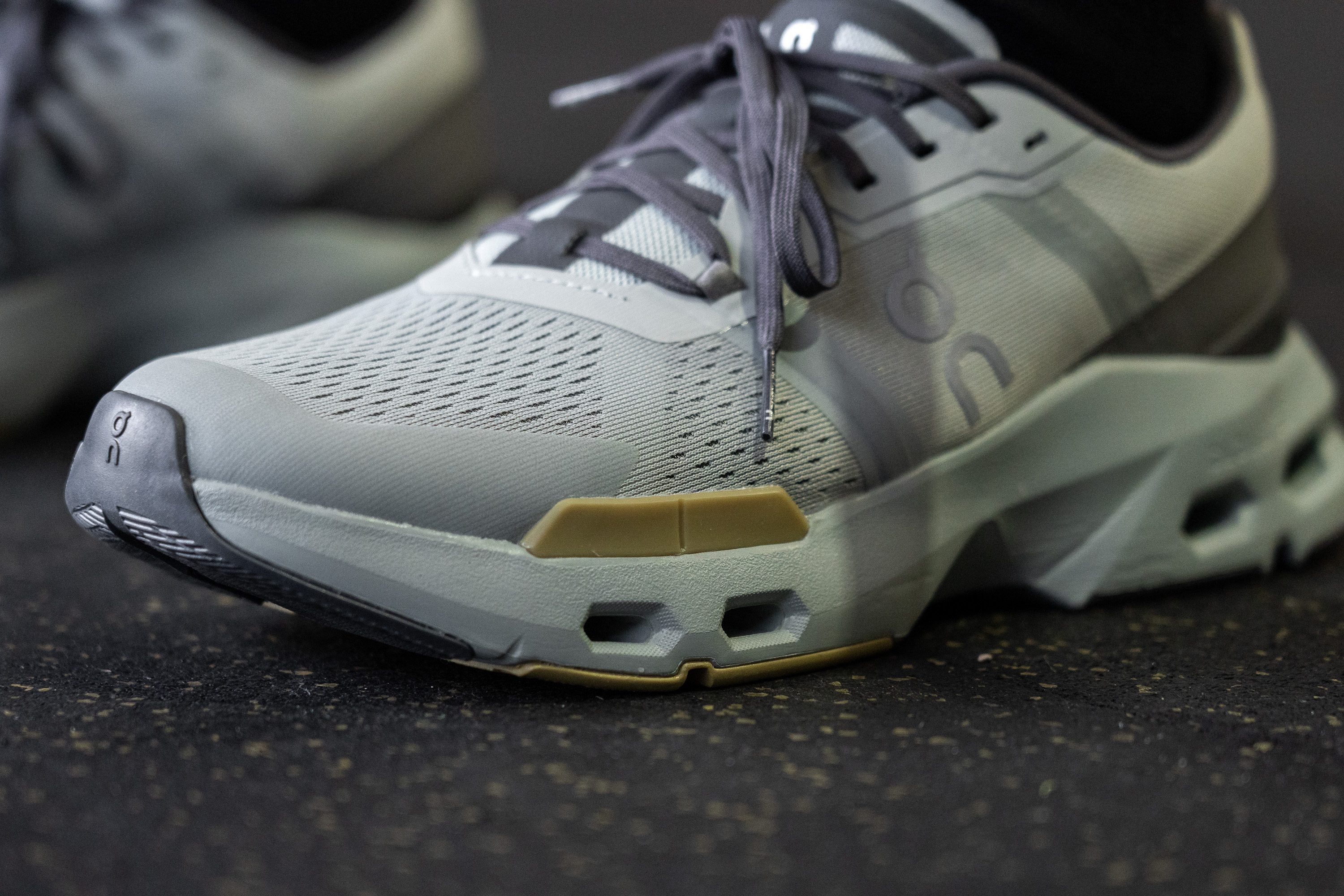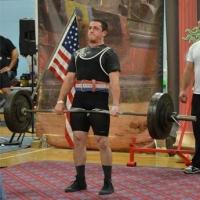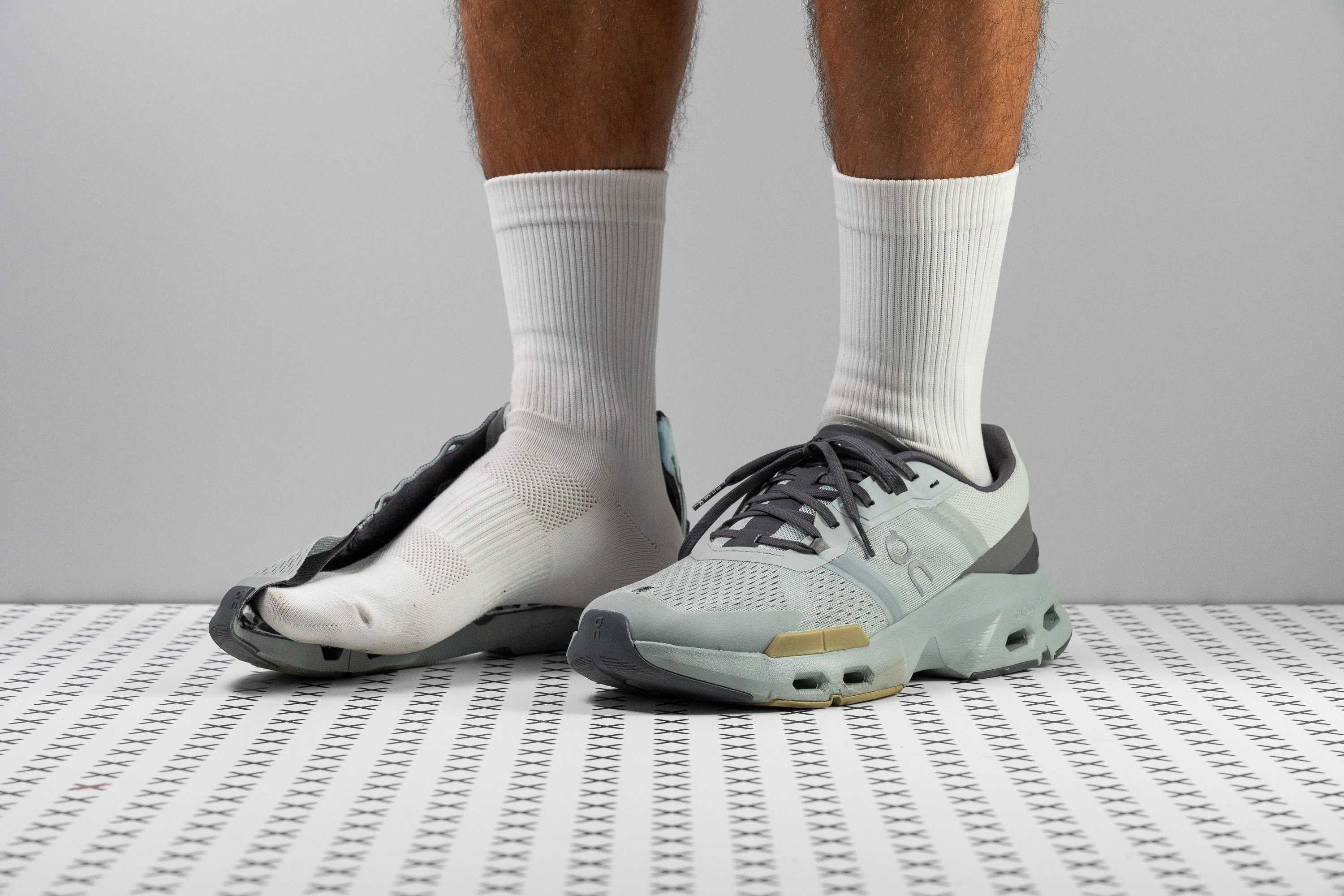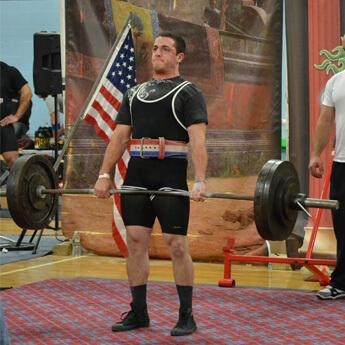Our verdict
- Top pick in best gym shoes
- Top pick in best workout shoes
Pros
- Excellent impact protection for HIIT and cardio
- Midsole feels responsive for jumps and runs
- Great lateral support and stability
- Highly breathable upper
- Sturdy and durable construction
- Perfect outsole grip for gym floors
- Accommodating toebox
Cons
- Not for heavy lifting (200 lbs/90 kg max)
- Not very bendy forefoot
- Frail toebox mesh (not for rope climbs)
Audience verdict
Comparison
The most similar training shoes compared
+ + Add a shoe | |||||
|---|---|---|---|---|---|
| Audience score | 84 Good! | 89 Great! | 84 Good! | 83 Good! | |
| Price | $150 | $150 | $150 | $80 | |
| Use | WorkoutCross-trainingGymHIITJumping rope | WorkoutCross-trainingGymHIITJumping rope | WorkoutCross-trainingGymHIITJumping rope | WorkoutCross-trainingGymHIITJumping rope | |
| Shock absorption | High | High | High | High | |
| Energy return | Moderate | Moderate | High | Moderate | |
| Traction | High | Low | Moderate | Low | |
| Drop lab | 9.8 mm | 8.9 mm | 8.5 mm | 8.8 mm | |
| Heel stack lab | 32.9 mm | 30.4 mm | 23.2 mm | 30.6 mm | |
| Forefoot | 23.1 mm | 21.5 mm | 14.7 mm | 21.8 mm | |
| Weight lab | 11.3 oz / 319g | 9.5 oz / 268g | 8.7 oz / 247g | 10.4 oz / 296g | |
| Lightweight | ✗ | ✓ | ✓ | ✓ | |
| Breathability | Breathable | Breathable | Breathable | Breathable | |
| Width / fit | Medium | Medium | Medium | Wide | |
| Toebox width | Medium | Medium | Medium | Medium | |
| Size | True to size | Slightly small | Slightly small | Slightly small | |
| Midsole softness | Balanced | Balanced | Firm | Balanced | |
| Stiffness | Stiff | Stiff | Moderate | Stiff | |
| Torsional rigidity | Stiff | Flexible | Flexible | Stiff | |
| Heel counter stiffness | Flexible | Moderate | Flexible | Moderate | |
| Toebox durability | Bad | Decent | Decent | Bad | |
| Heel padding durability | Good | Bad | Decent | Bad | |
| Outsole durability | Good | Bad | Good | Decent | |
| Midsole width - forefoot | Very wide | Average | Average | Wide | |
| Midsole width - heel | Wide | Average | Wide | Wide | |
| Widths available | Normal | Normal | Normal | Normal | |
| Insole thickness | Average | Average | Average | Average | |
| Outsole thickness | Thin | Average | Average | Average | |
| Outsole hardness | Average | Average | Average | Hard | |
| Heel tab | None | None | None | Finger loop | |
| Tongue: gusset type | Both sides (semi) | Both sides (semi) | Both sides (semi) | None | |
| Tongue padding | Thin | Average | Very thin | Average | |
| Ranking | #23 Bottom 37% | #12 Top 33% | #25 Bottom 32% | #27 Bottom 27% | |
| Popularity | #20 Bottom 45% | #4 Top 11% | #29 Bottom 21% | #9 Top 25% |
Who should buy
Having put the Cloudpulse through the rigors of gym training, we can confirm that it can make a great option for the following people:
- athletes who primarily focus on HIIT and cardio at the gym
- fans of the On brand who would like to experience its leading technologies in a training shoe
- folks with wider feet and those who are used to having a roomy toebox in their gym shoes
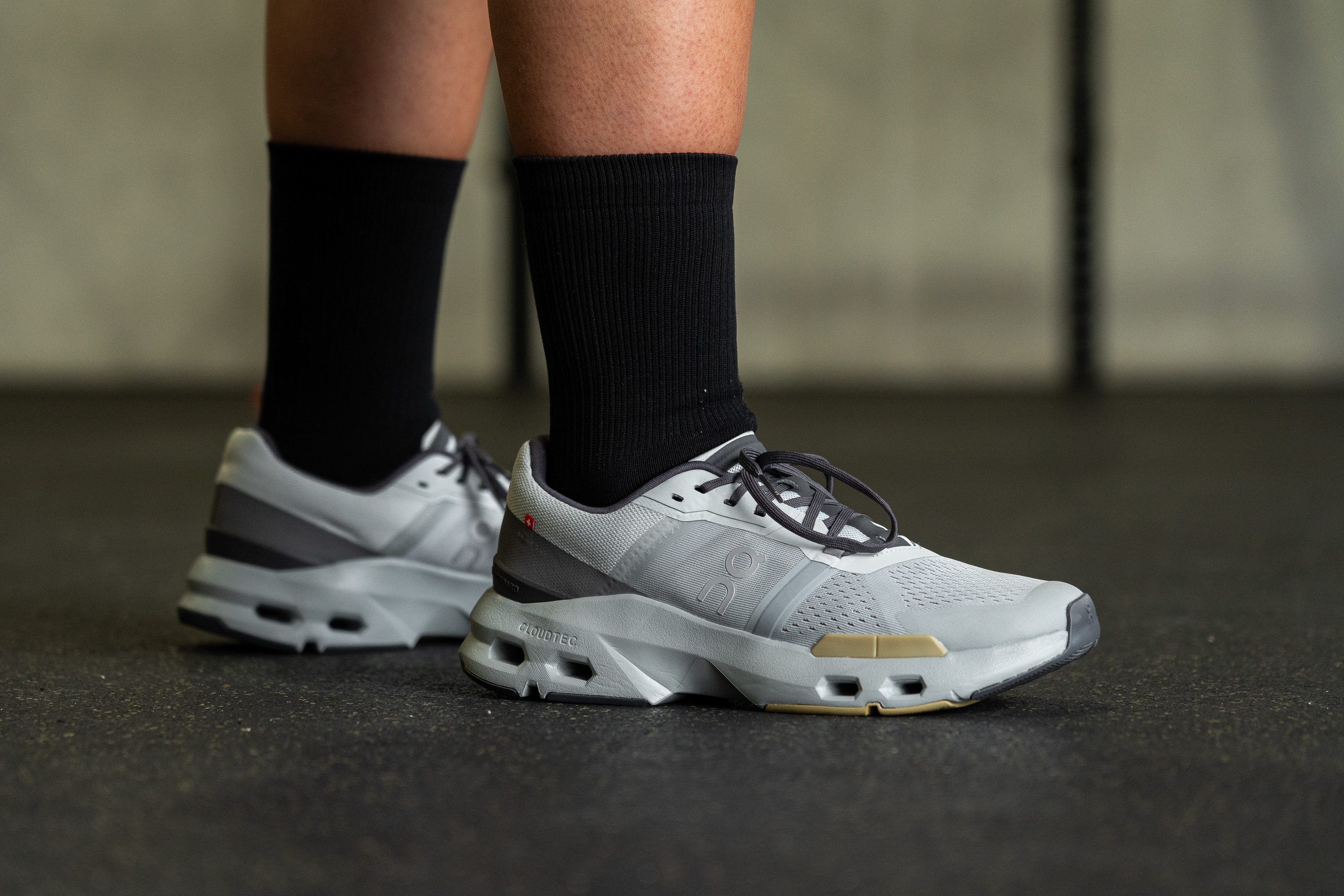
Who should NOT buy
If you are considering the Cloudpulse for Crossfit and weightlifting, we recommend looking towards more stable and sturdy options like the Nike Metcon 9. It is much more suitable for lifting weights over 200 lbs (90 kg).
We are surprised that On positions the Cloupulse as its first-ever trainer for the gym because the brand already has options like the Cloud X 3 and the Cloud X 3 AD among others. These trainers are more minimal, much lighter, and more flexible than the Cloudpulse which makes them more suitable for a mix of moderate workouts and casual wear.
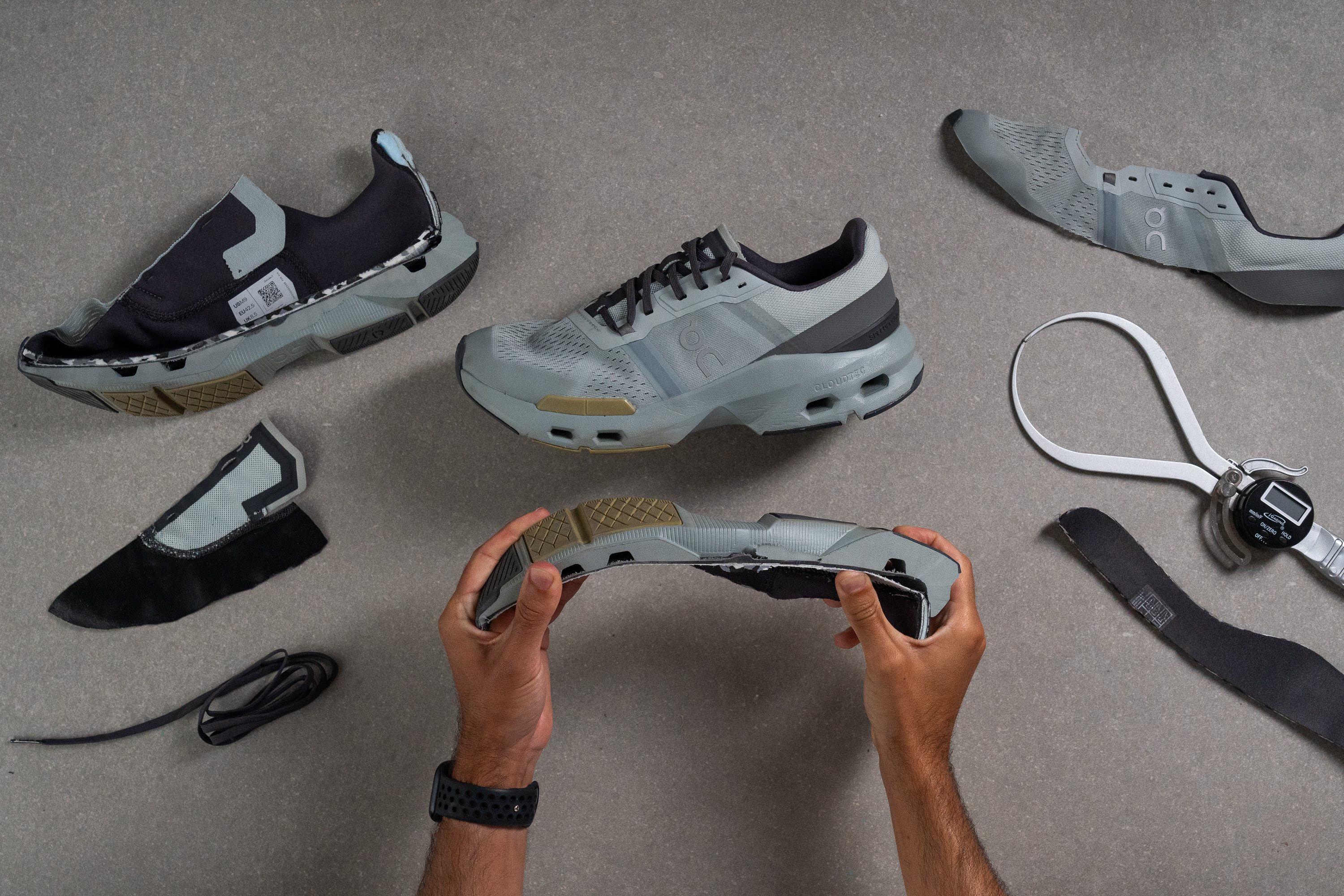
Cushioning
Shock absorption
As one of the tallest training shoes on our list, the Cloudpulse also offers more impact protection for high-intensity exercises with lots of jumps. Measuring its shock absorption in the lab, we recorded notably higher-than-average readings in both the heel (104 SA) and the forefoot (85 SA).
This is one of the reasons why we think that the Cloudpulse is better geared for HIIT and cardio as opposed to weightlifting and Crossfit. The added cushioning detracts from the ground feel and stability needed for lifting heavy loads.
Even though we were able to lift moderate loads without a problem, things started to get wobbly and disconnected when we tried to grab more than 200 lbs (90 kg).
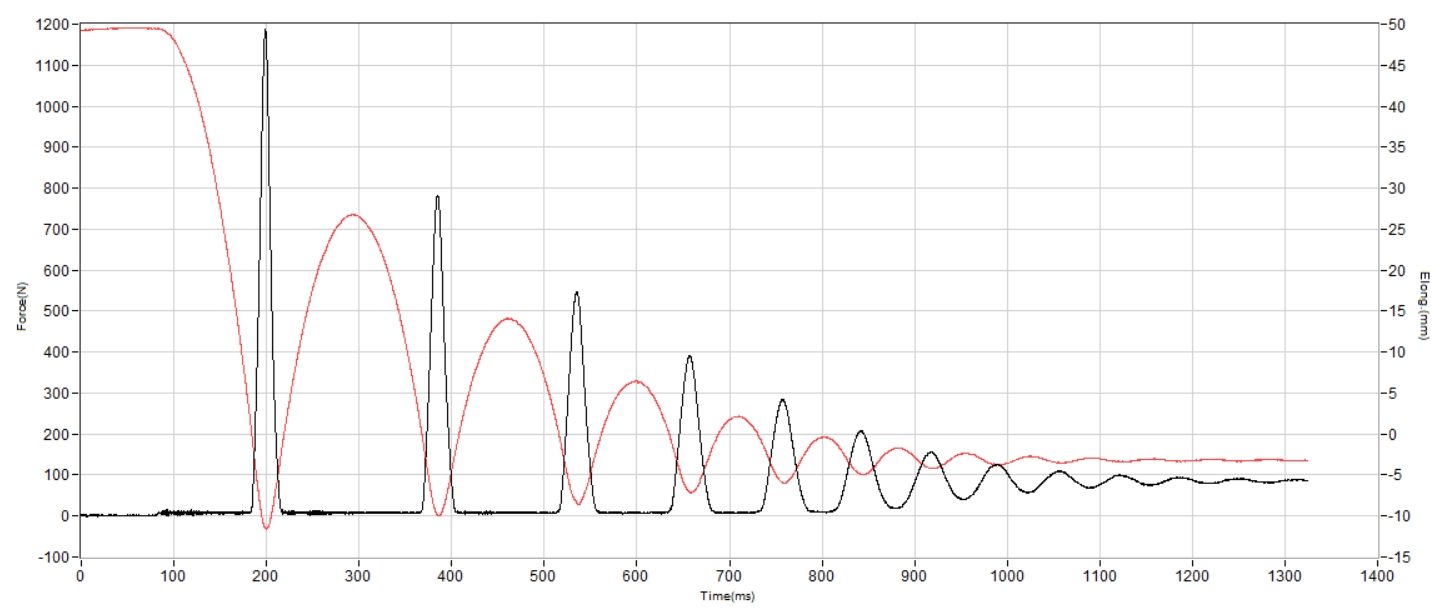
| Cloudpulse | 104 SA |
| Average | 79 SA |
Energy return
It's also impossible to ignore the Cloudpulse's midsole elasticity and the rebound that comes with it.
The shoe's above-average energy return of 58.1% in the heel and 60% in the forefoot made our toe-offs more charged for short runs, jumping rope, and other cardio work.
| Cloudpulse | 58.1% |
| Average | 54.8% |
Heel stack
Wear-testing the On Cloudpulse, we could feel that our feet sat higher off the ground compared to most cross-trainers. And it proved to be true in our stack height measurements.
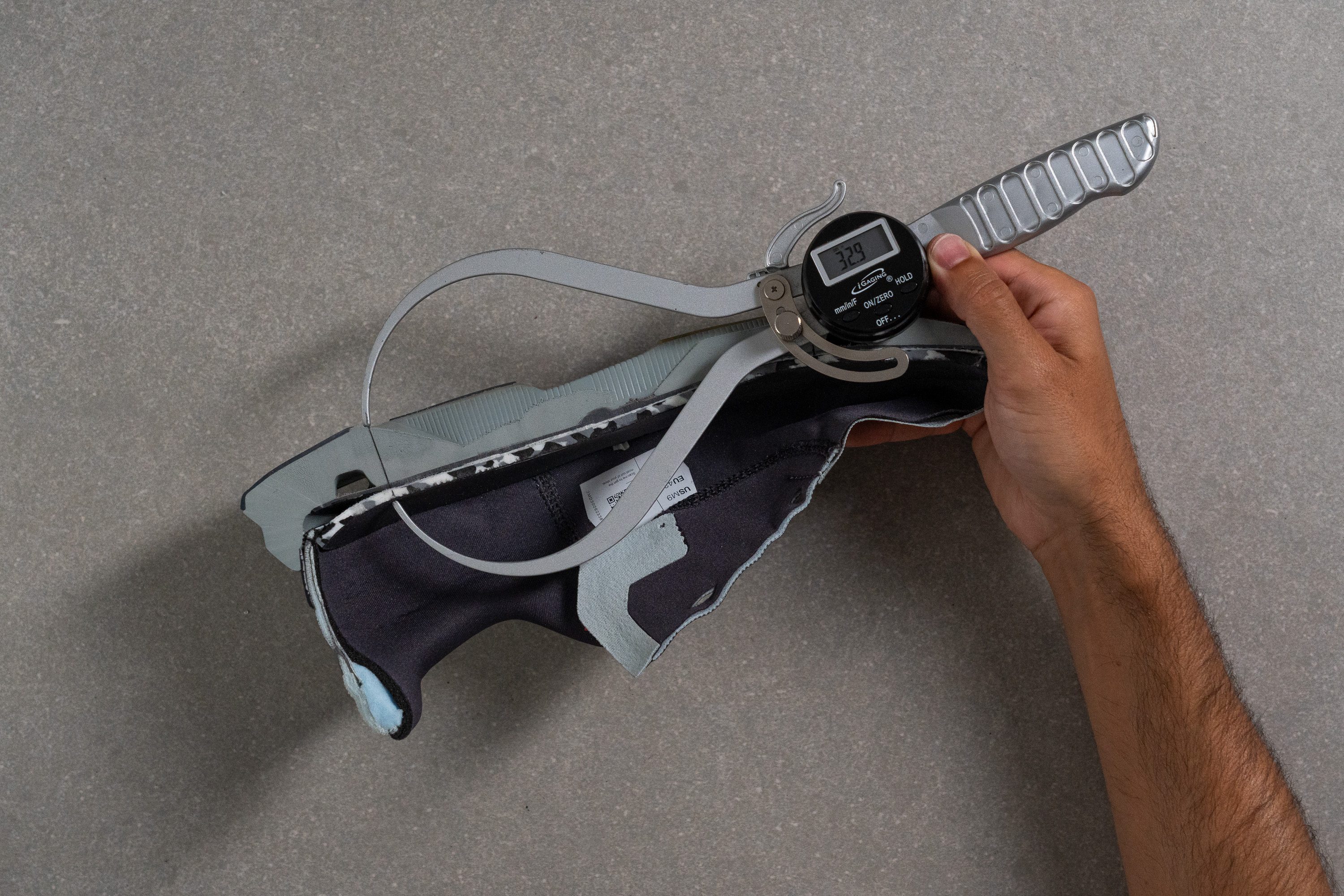
Our caliper showed 32.9 mm of platform thickness in the heel which is a good 8.5 mm higher than the average!
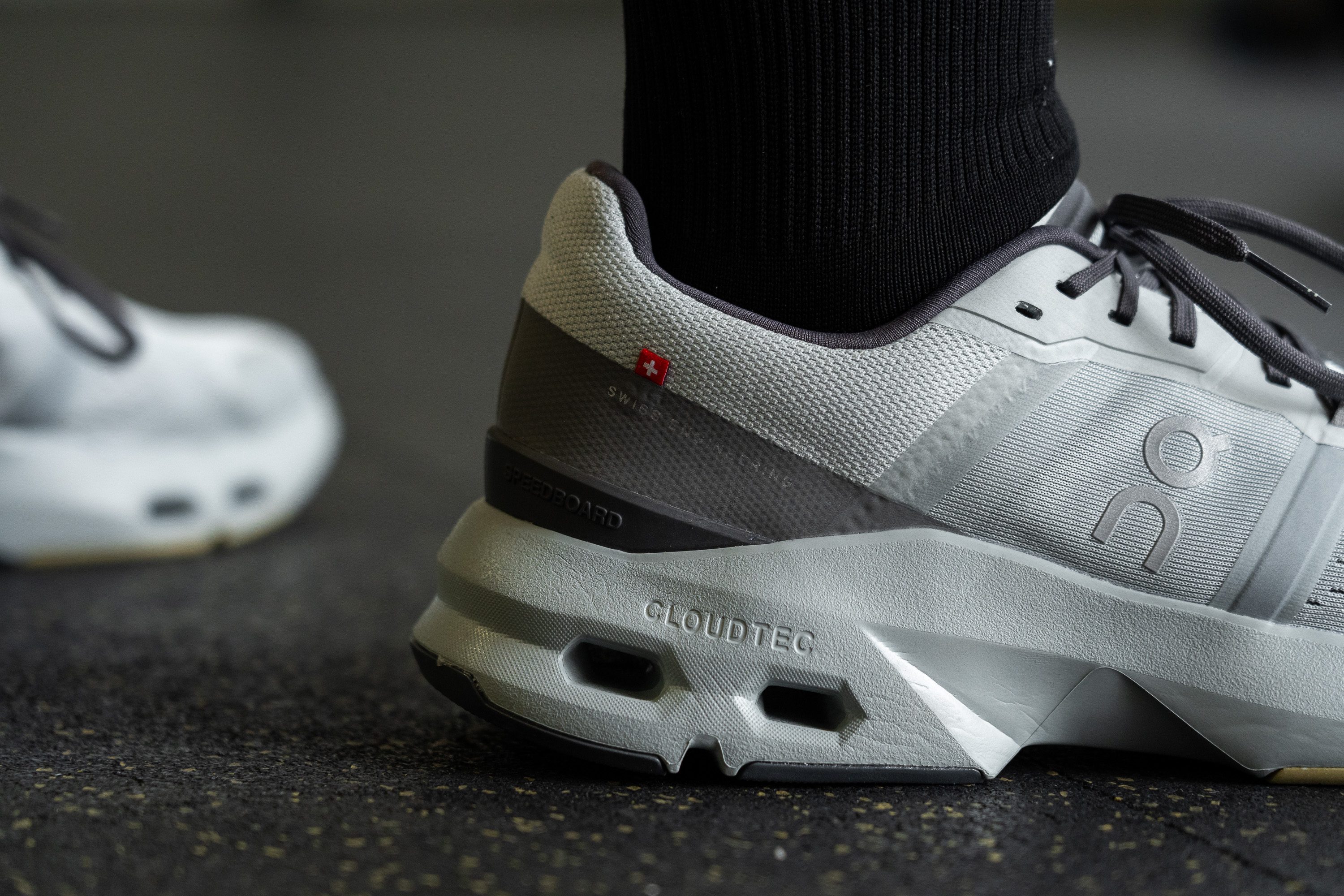
| Cloudpulse | 32.9 mm |
| Average | 24.3 mm |
Forefoot stack
The shoe's forefoot stack also showed an above-average reading of 23.1 mm.
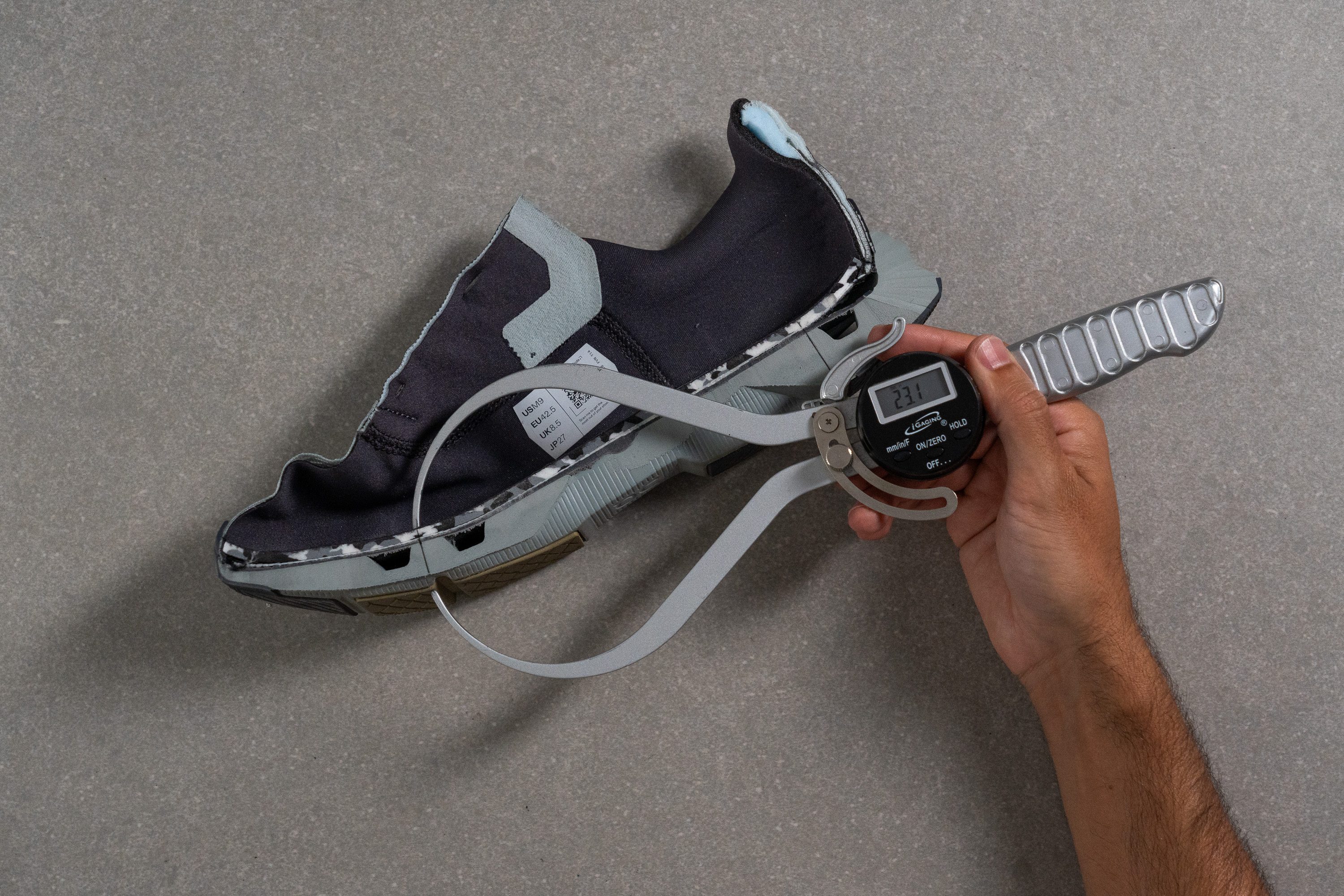
But because of the CloudTec midsole design which includes compressible pods, the actual stack gets lower when the shoe is loaded with the wearer's weight.
| Cloudpulse | 23.1 mm |
| Average | 18.1 mm |
Drop
Based on our caliper measurements, the difference in height between the shoe's heel and forefoot stacks comes in at 9.8 mm. This is a bit higher than the officially stated 8 mm.
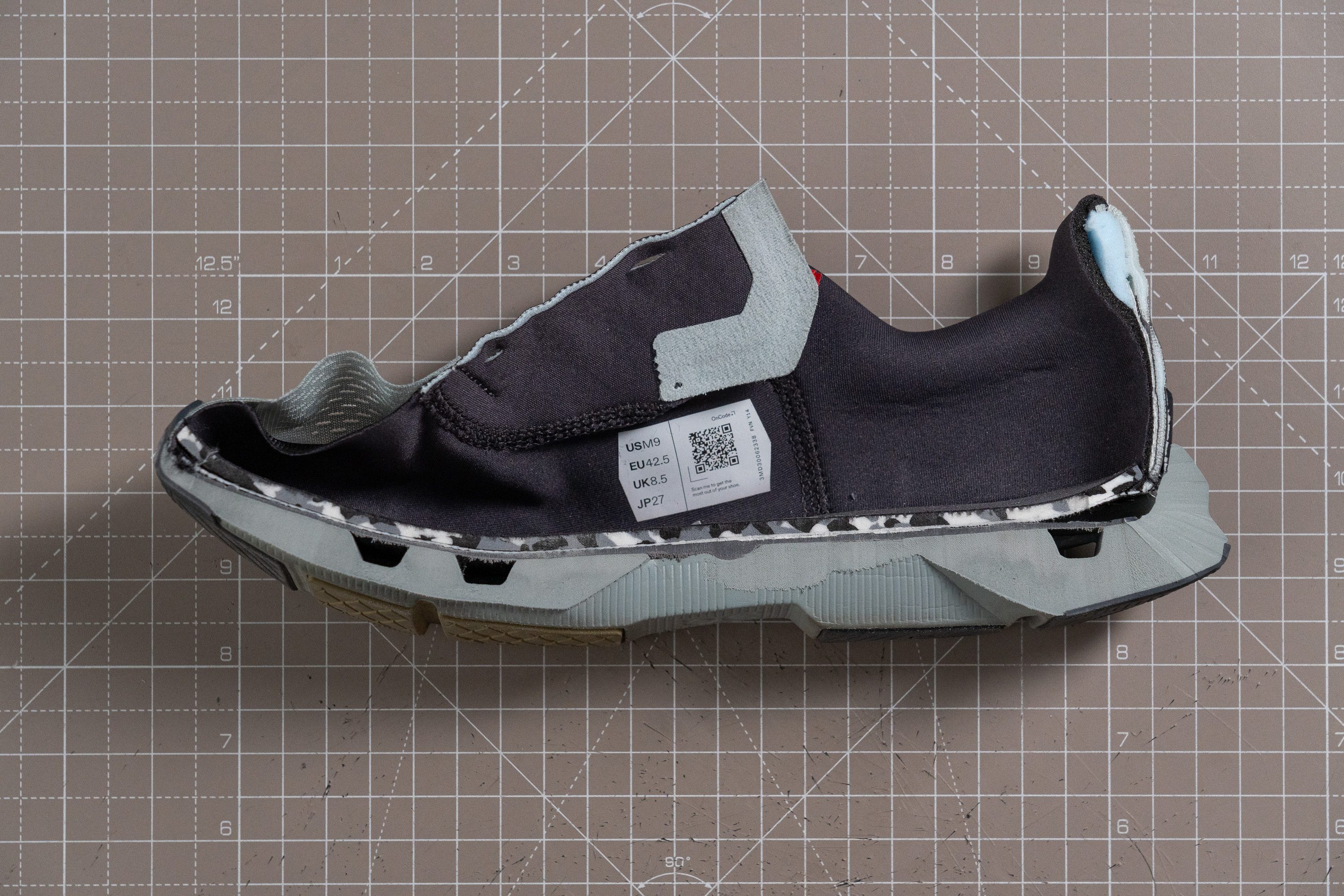
| Cloudpulse | 9.8 mm |
| Average | 6.3 mm |
Midsole softness
The Cloudpulse uses the same proprietary Helion foam as the rest of On's footwear. Pressing our Shore A durometer against it showed a reading of 25.3 HA which is on par with the training shoe average.
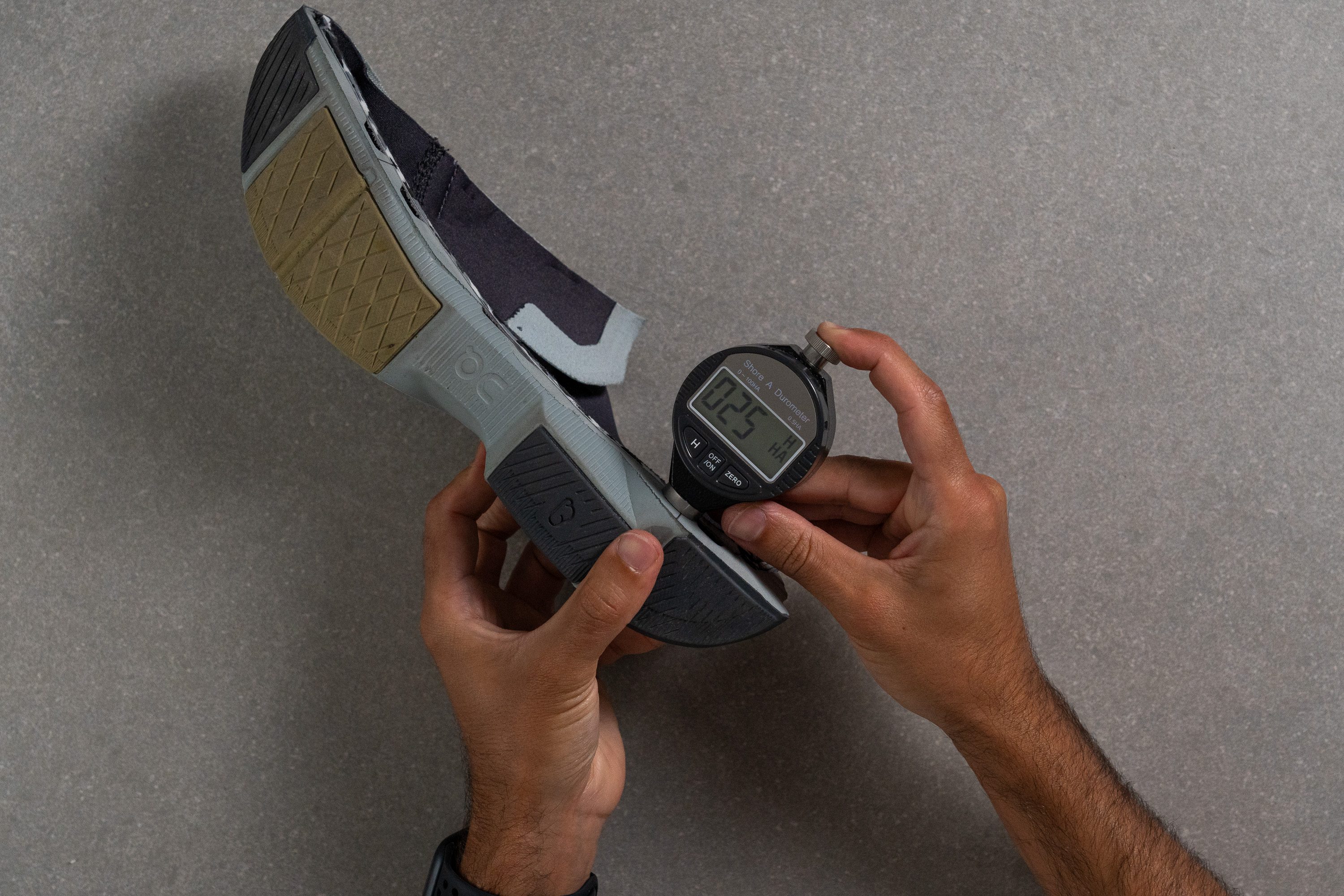
But even though the foam is moderately firm, it still compresses more than the typical gym shoe midsole due to the CloudTec pods.
As we already mentioned, it offers amazing impact protection but is absolutely detrimental for stability under heavy loads.
| Cloudpulse | 25.3 HA |
| Average | 27.8 HA |
Size and fit
Size
On Cloudpulse fits true to size (53 votes).
Internal length
| Cloudpulse | 270.0 mm |
| Average | 268.9 mm |
Width / Fit
If you have already worn On's running shoes or lifestyle sneakers, prepare for a notably roomier fit in the Cloudpulse. To give you solid and comparable numbers, we retrieved a mold of the shoe's interiors using proprietary gel.
Measuring the widest part of the shoe's mold, our caliper recorded 97.0 mm. This is wider than the average of On shoes we've tested (94.6 mm) but is on par with the average of training shoes.
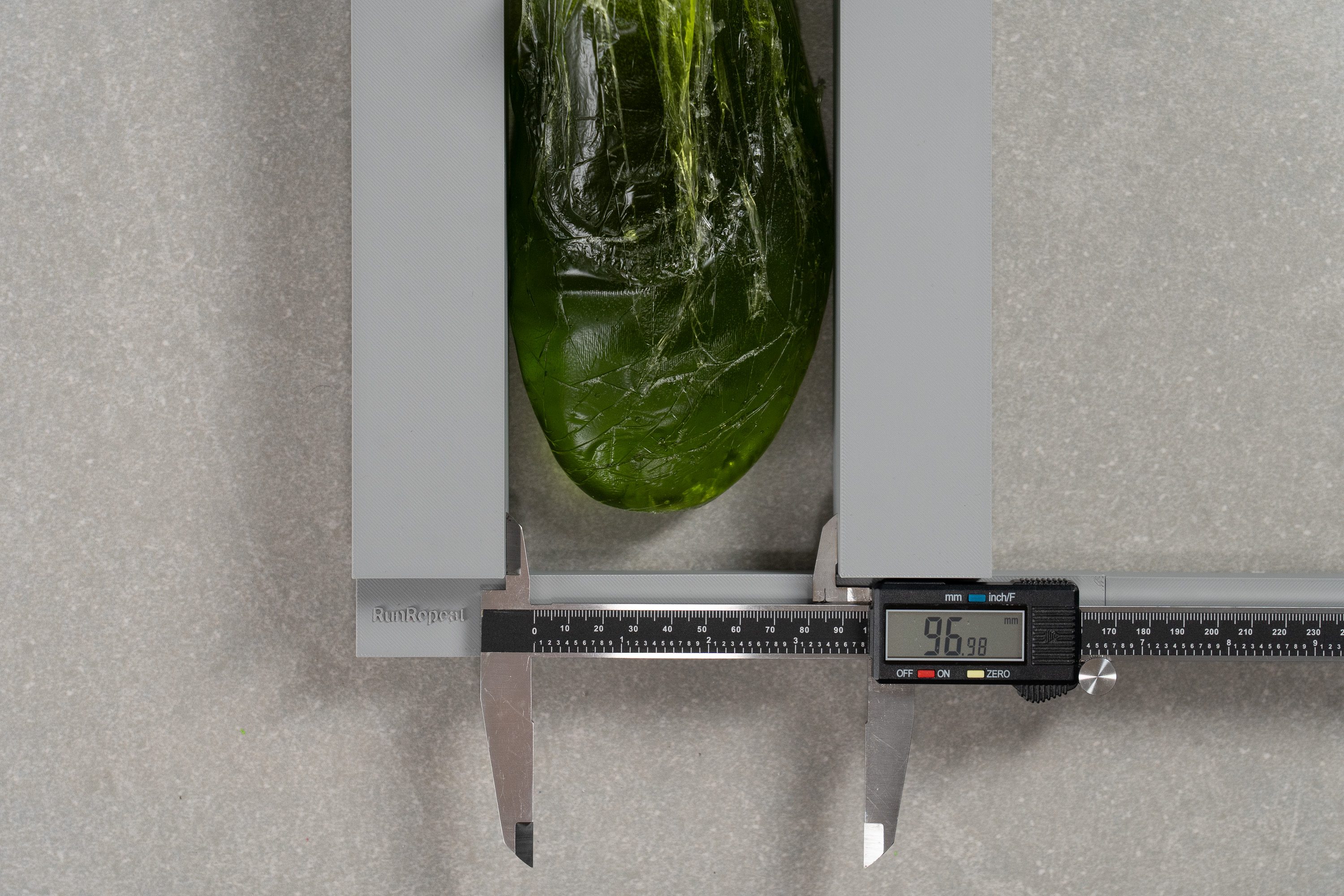
| Cloudpulse | 97.0 mm |
| Average | 96.6 mm |
Toebox width
Training shoes are supposed to have accommodating toeboxes so that your toes have enough space to splay freely and create a more stable base for the rest of your body to lean on. This is especially important for keeping balance when doing one-legged exercises or lifting.
The rounded shape of its toebox also makes the Cloudpulse feel notably roomier. Our caliper measured an above-average reading of 74.2 mm in the big toe area.
As someone with medium-width feet, we appreciated the extra space without feeling like our toes were swimming in the shoe. But if you have narrow feet, this could feel like too much and you may need a more streamlined silhouette (like the Cloud X 4).
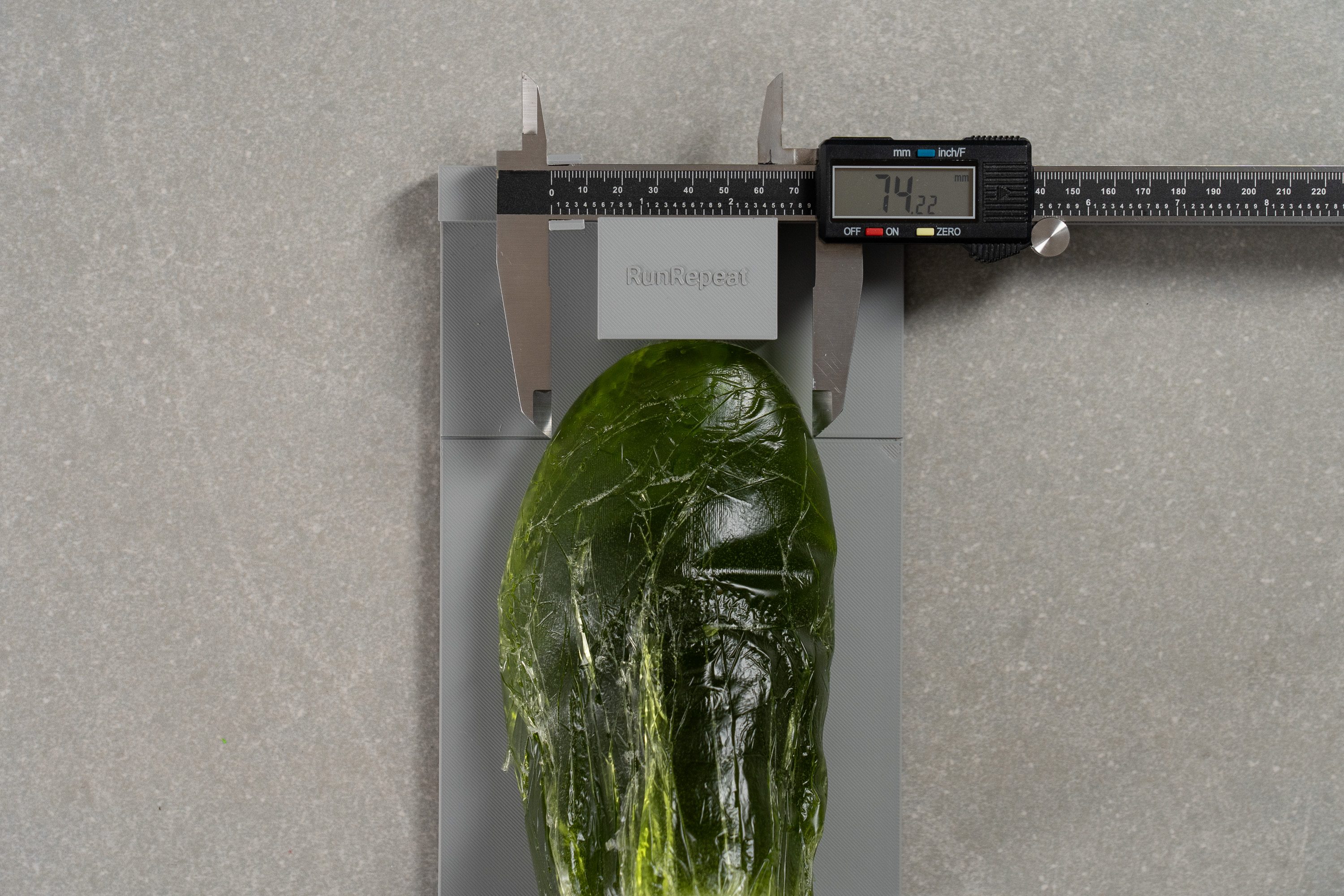
| Cloudpulse | 74.2 mm |
| Average | 73.5 mm |
Toebox height
Our toes never felt pressured or constricted from the top either. This is thanks to the Cloudpulse's ample vertical space of 26.7 mm.
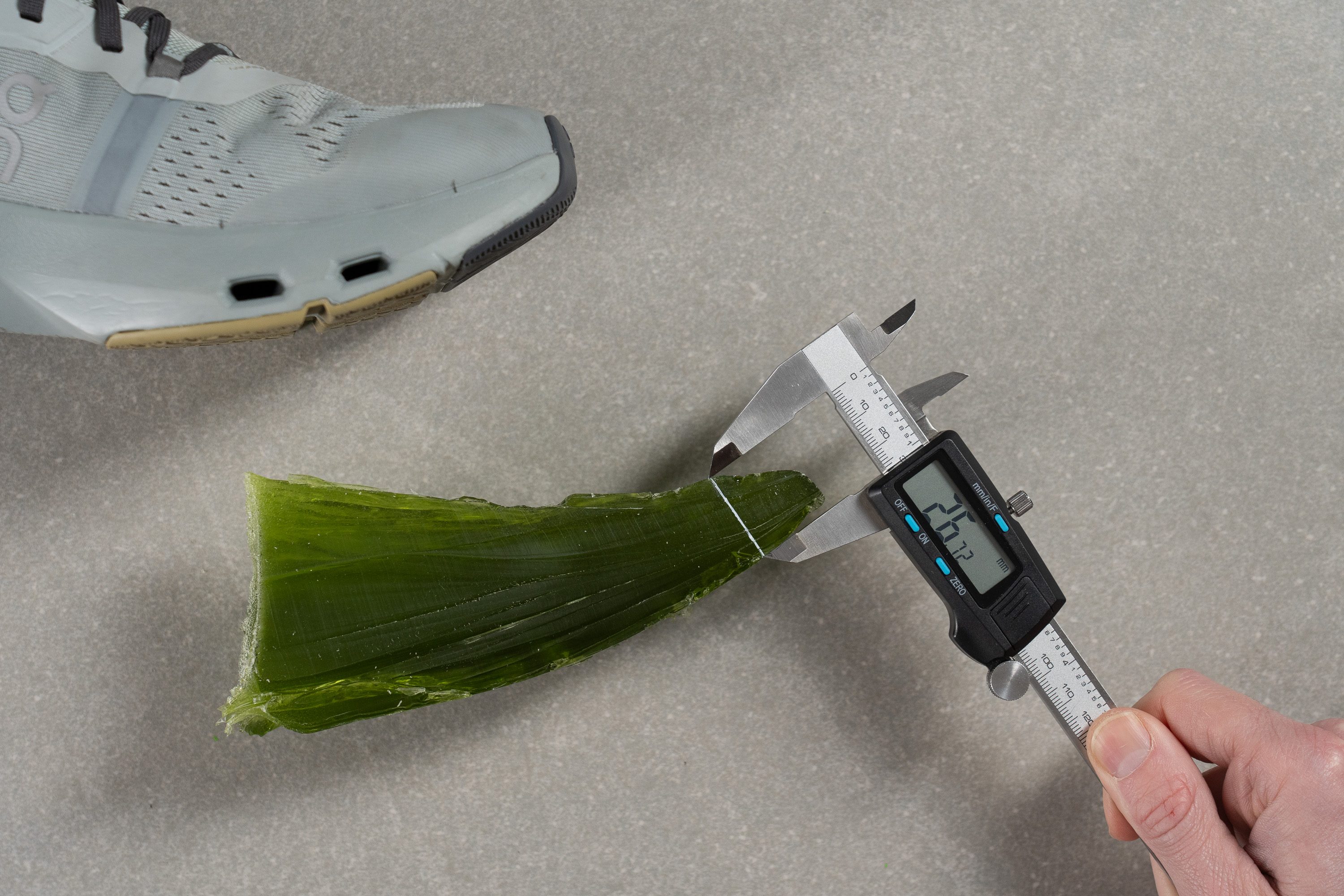
| Cloudpulse | 26.7 mm |
| Average | 27.1 mm |
Laces
This training shoe from On has a standard no-frills lacing system that is easy to work with. The laces are flat but stay tied dutifully. Two lace holders on the tongue also help to prevent them from sliding around.
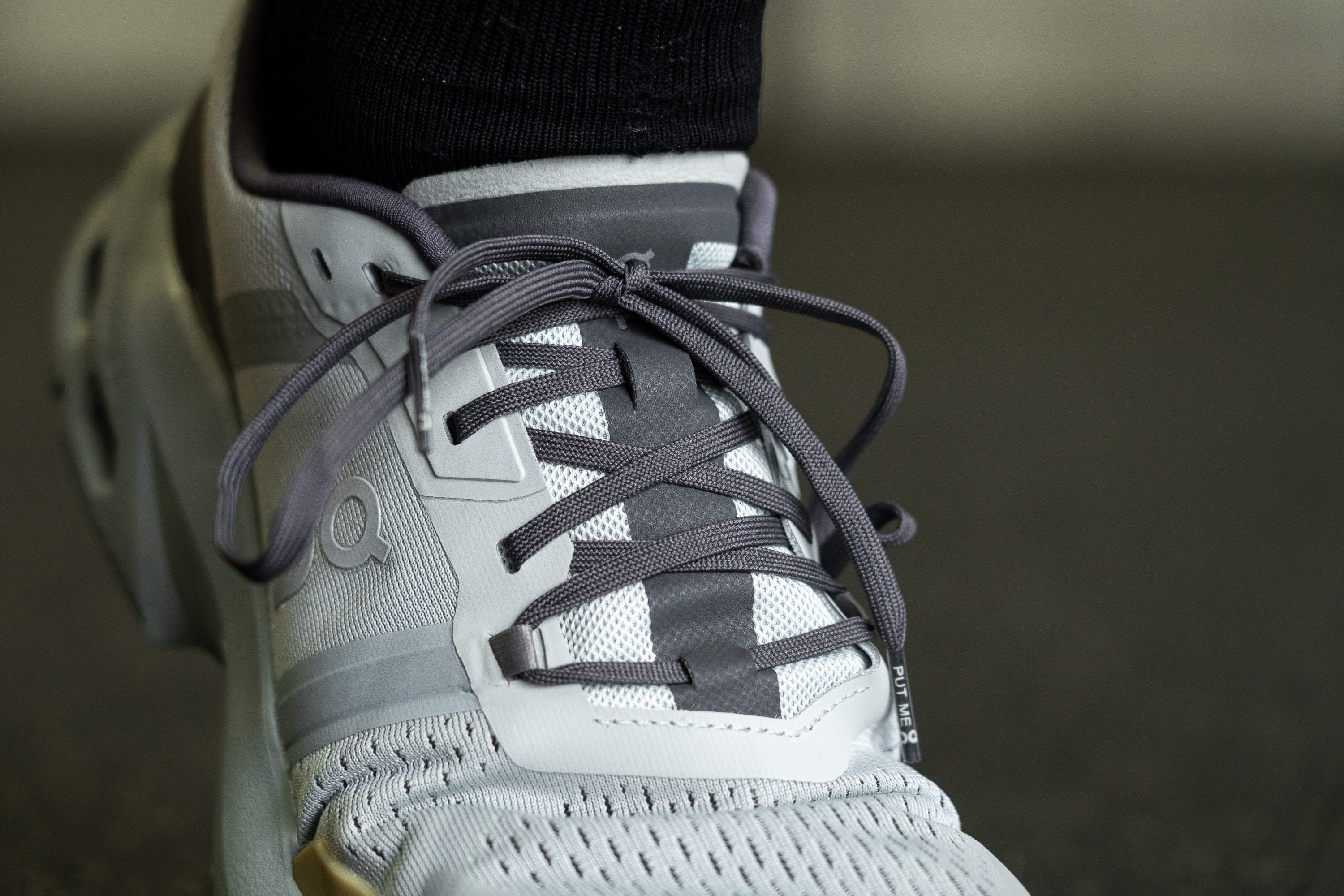
We do think that the laces could be shorter but it's not a huge problem.
Traction / Grip
Traction test
The On brand delivers when it promises "high-grip rubber" in the Cloudpulse's product description.
Testing how well the shoe's forefoot can bite wet concrete under a 500N force, we recorded an impressive friction coefficient of 0.45. This means that the Cloudpulse has great stopping power for jumping on plywood boxes, a strong bite for sled pushes on polished concrete, and consistent traction for all sorts of exercises on rubber or hardwood gym floors. Even when the latter are getting wet from sweat.
| Cloudpulse | 0.45 |
| Average | 0.33 |
Outsole design
The Cloudpulse features a variation of the brand's CloudTec sole. It retains the signature segmented design and deep flex grooves but its pods are notably flatter and shallower to provide a more grounded experience for gym training.
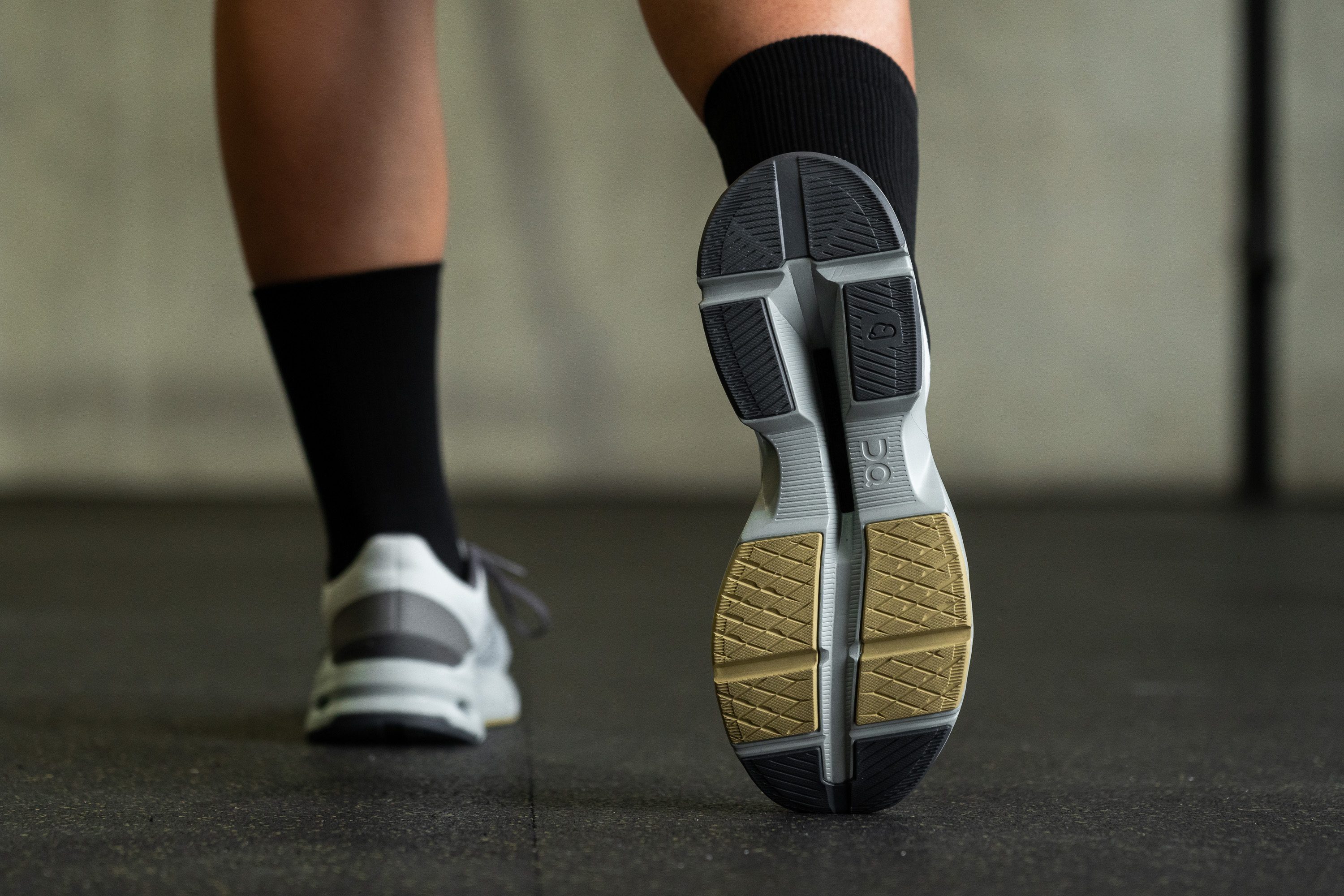
Flexibility / Stiffness
The full-length Speedboard of the Cloudpulse as well as its thicker forefoot stack certainly detracted from the shoe's flexibility.
Measuring how much force it takes to bend this On trainer to a 30-degree angle, we found that it is indeed stiffer than average. Our flexibility machine returned an above-average measurement of 19.3N which is significantly more force than usual for a training shoe.
In other words, the Cloudpulse is not very forgiving for planks, lunges, and other exercises where foot bending is involved.
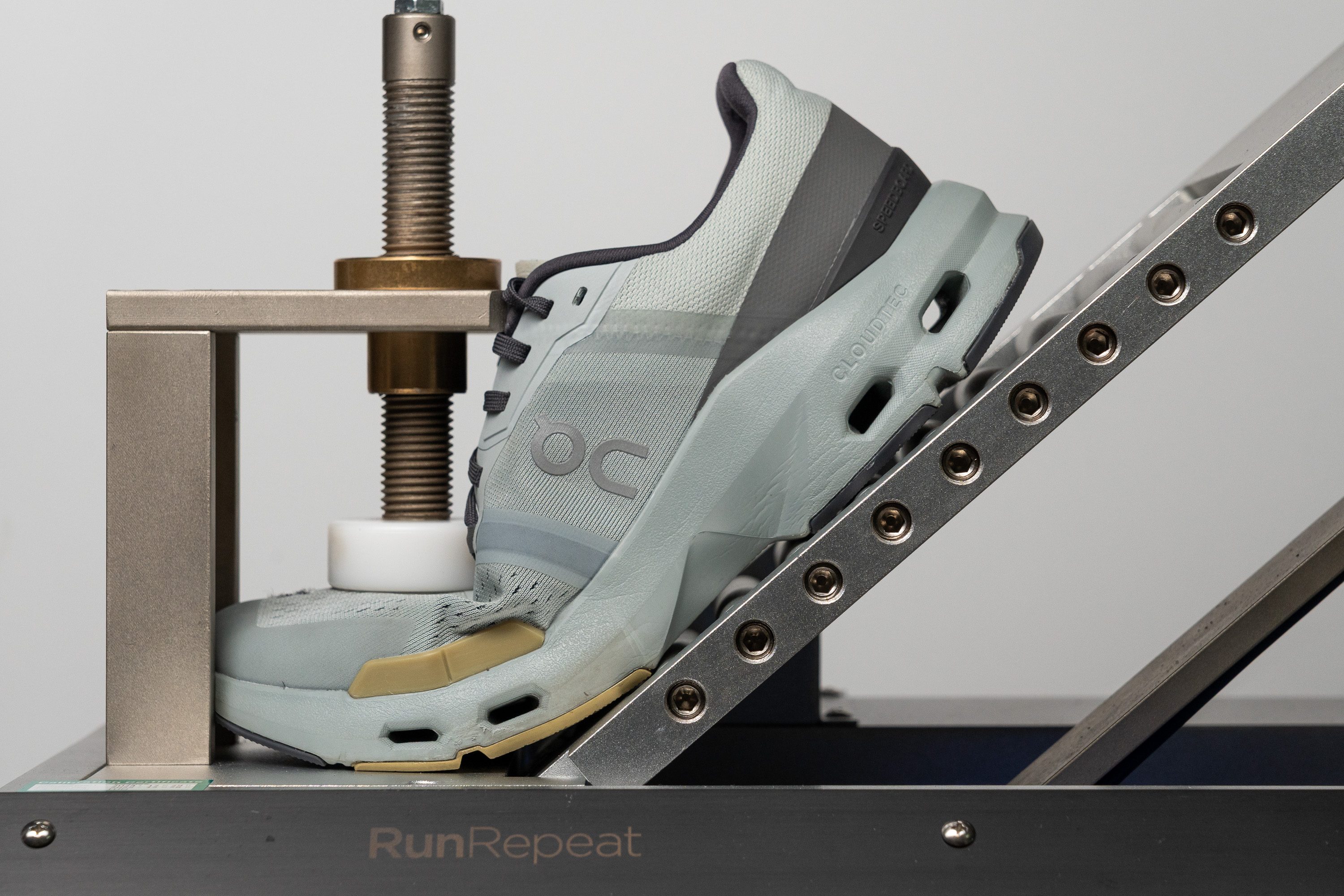
| Cloudpulse | 19.3N |
| Average | 10.2N |
Weight
Putting the Cloudpulse on for the first time, we immediately noticed its platformy build. Luckily, it doesn't add that much heft to the trainer.
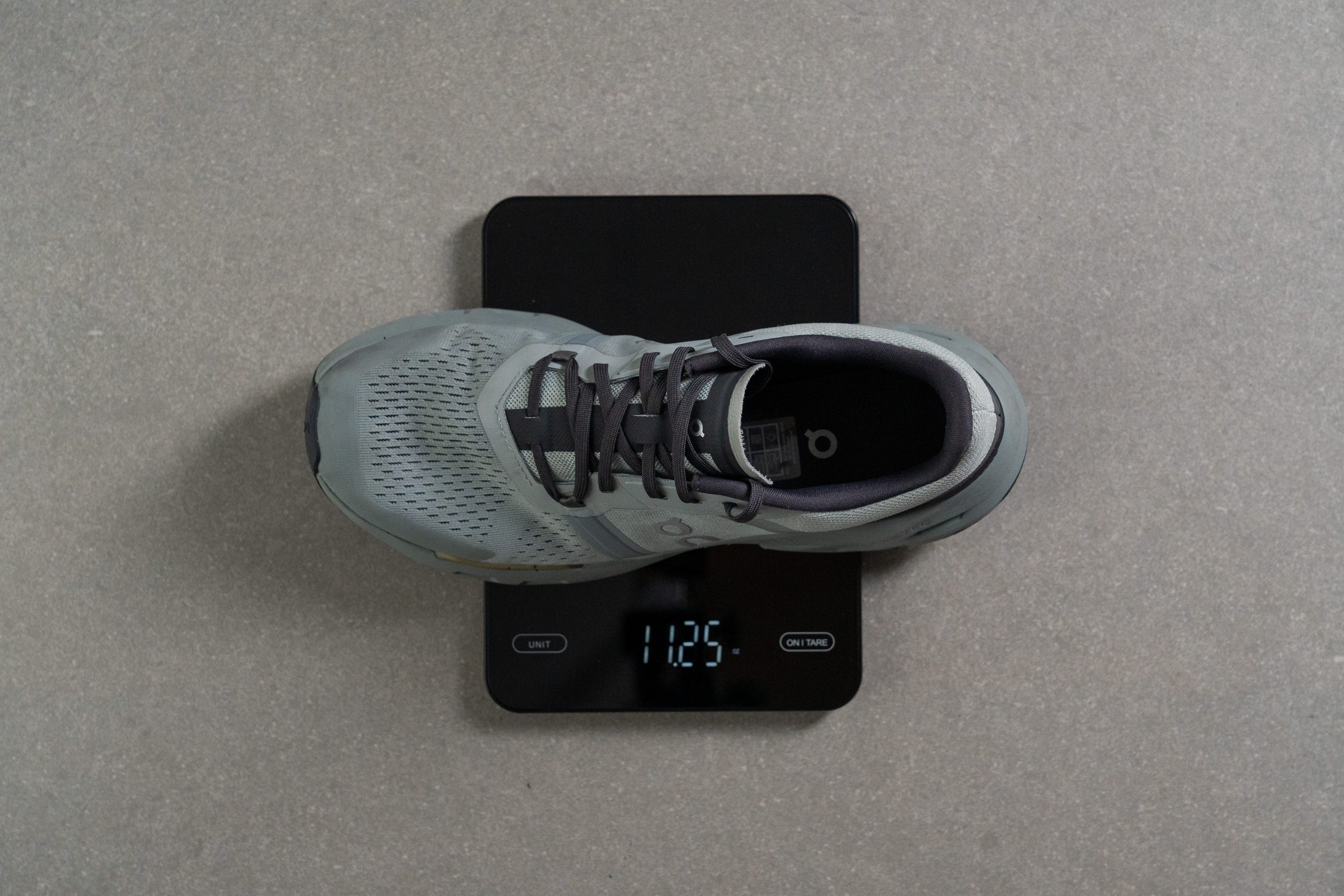
Showing 11.3 oz (319g) in a men's US size 9, it is only half an ounce heavier than the average. But it is notably lighter compared to the popular Nike Metcon 9 cross-trainer (13.3 oz/378g).
We found the Clouspulse's weight to be optimal for typical HIIT workouts but if you only focus on cardio and agility training, we think you might appreciate the lighter On Cloud X 3 trainer (8.7 oz/248g) more.
| Cloudpulse | 11.3 oz (319g) |
| Average | 10.7 oz (304g) |
Breathability
As you focus on achieving results at the gym, you certainly don't want to be bothered by wet and stinky feet. The Cloudpulse will take your worries away with its thoughtfully engineered mesh upper.
The smoke we pumped into the shoe's upper passed right through the fabric within a few seconds! This proved that the pores are large enough to maintain unobstructed airflow inside the shoe.
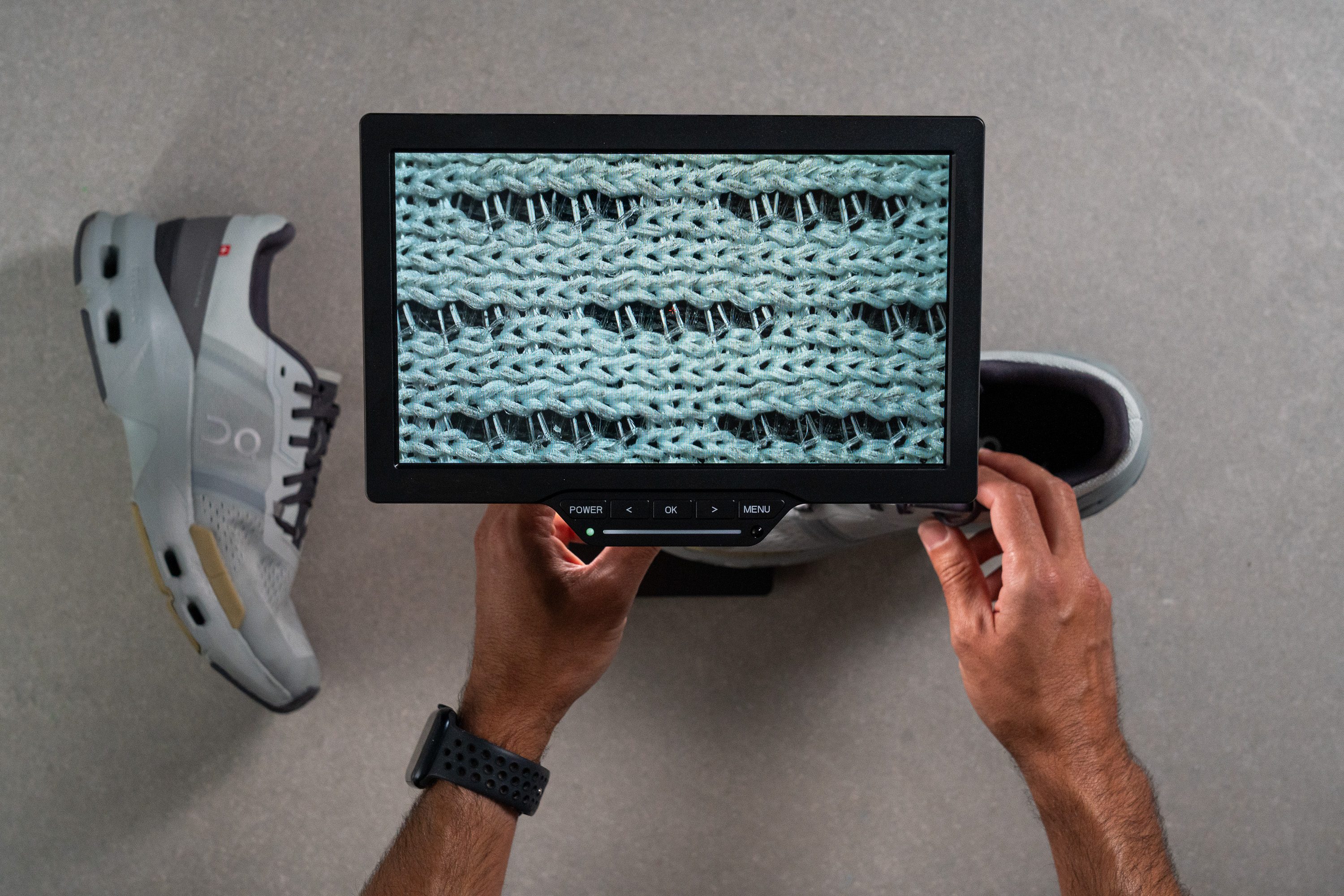
In a closer look through our microscope, we also saw how thin threads are helping to make the shoe's ventilation holes larger.
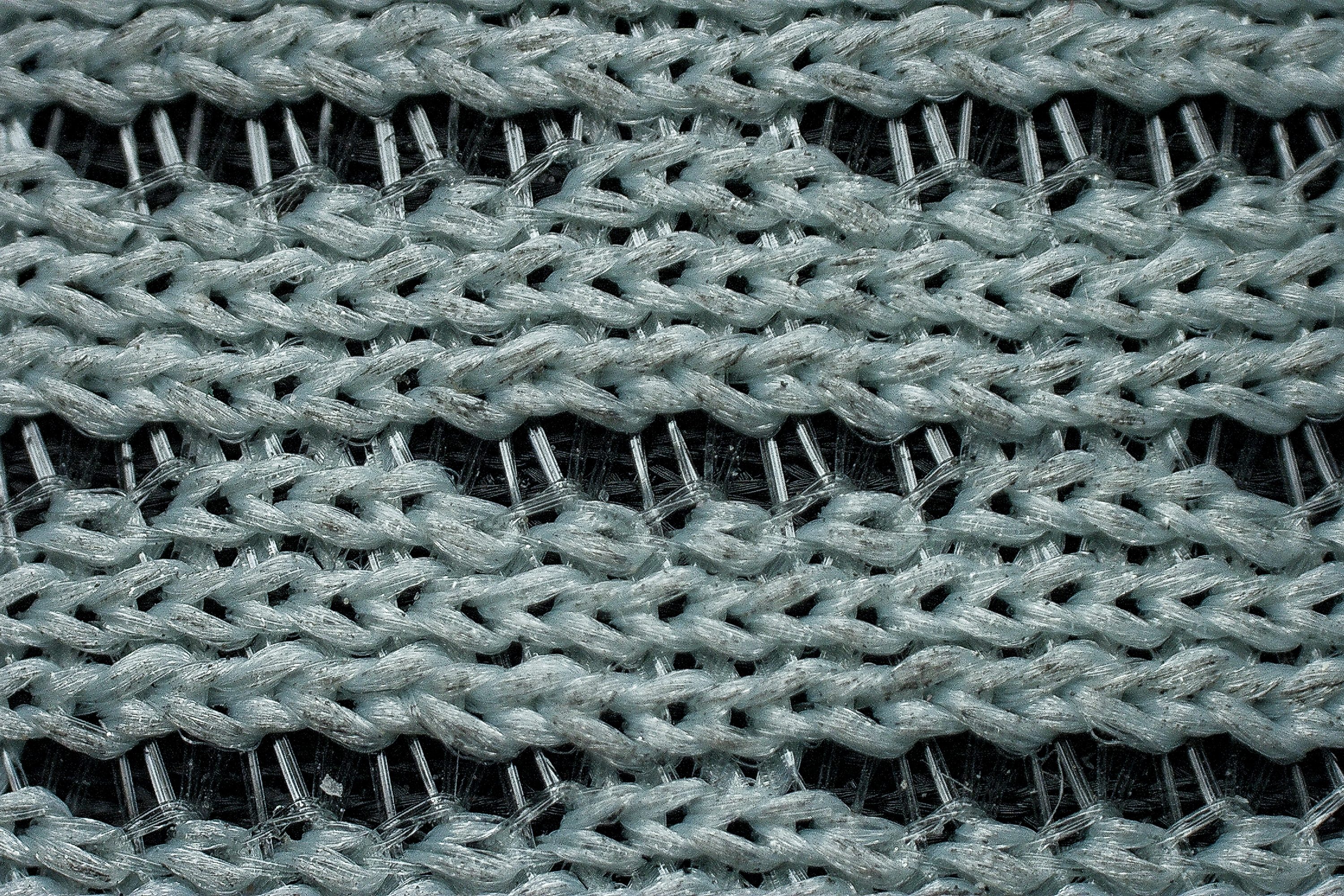
No matter how heated your HIIT session gets, the On Cloudpulse will keep it cool. Thus, we gave it the highest breathability score of 5 out of 5.
| Cloudpulse | 5 |
| Average | 3.6 |
Stability
Lateral stability test
Even though the Cloudpulse lacked stability for more serious lifting, we have no complaints regarding its ability to support the foot laterally.
The shoe has quite a few stability elements that dutifully controlled the side-to-side movements of our feet and ankles. From its reinforced upper with a structured heel counter to the stiff full-length Speedboard and wide platform - everything helped us feel planted during the more dynamic exercises.
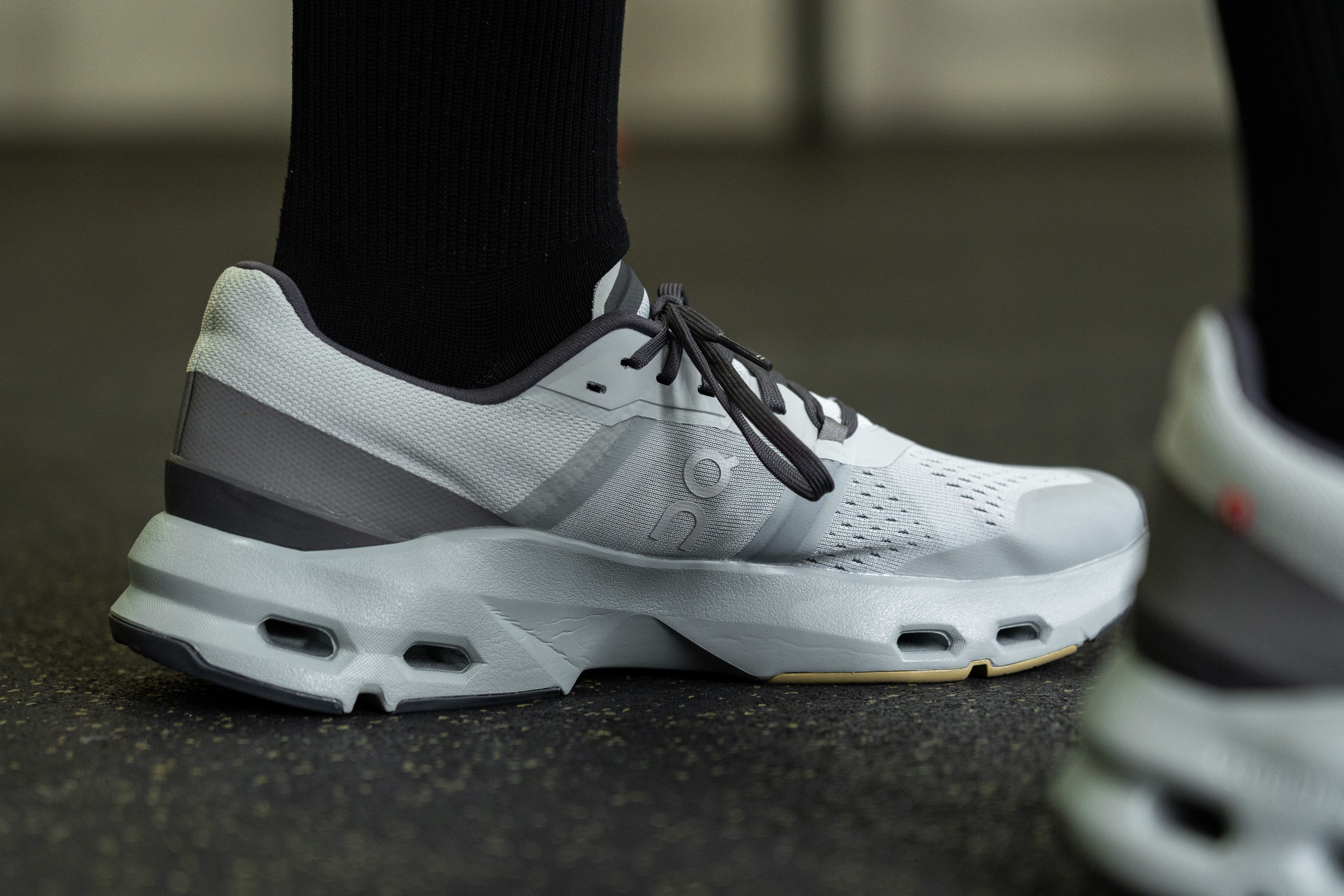
Torsional rigidity
Ankle twisting was out of the question as the shoe's rigid midsole refused to bend in our manual test. This is in part because of the Speedboard plate that runs through the Cloudpulse's entire sole length.
On a 1-5 scale, where 5 stands for maximum stiffness, we gave this On trainer a high score of 4.
| Cloudpulse | 4 |
| Average | 2.9 |
Heel counter stiffness
The Speedboard also extends back and protrudes up to form the base of the shoe's heel counter. It adds stiffness to the otherwise pliable shoe collar.
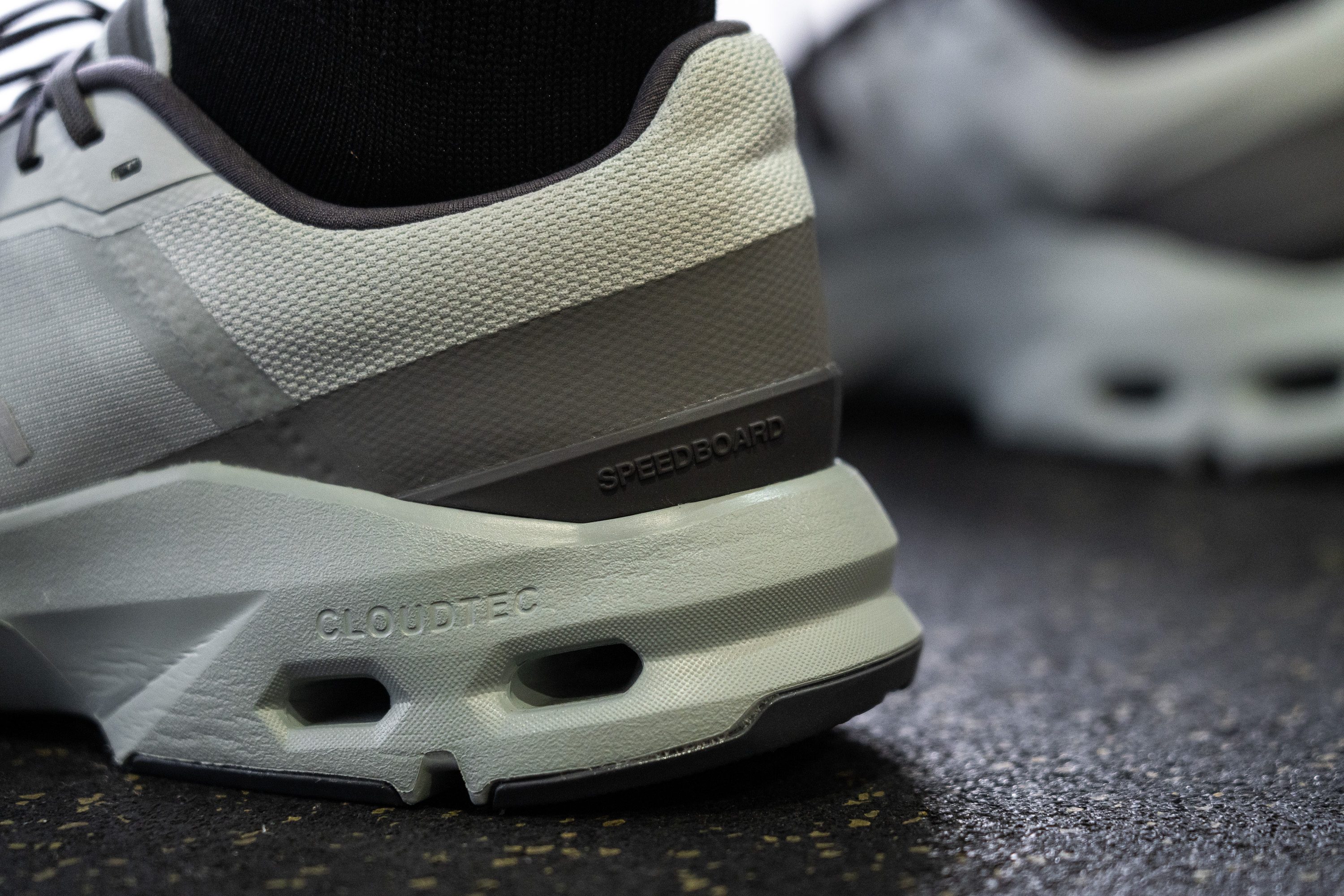
Our push-and-squeeze test showed that the top part of the Cloudpulse's collar can flex pretty freely. So it's nice to have the Speedboard and raised midsole sidewalls for added support at the base of the heel counter. They bumped up the shoe's heel counter stiffness score to 2 out of 5.
| Cloudpulse | 2 |
| Average | 2.7 |
Midsole width - forefoot
If you rely on a wide training shoe platform to feel and perform your best at the gym, the Cloudpulse is here to meet your needs.
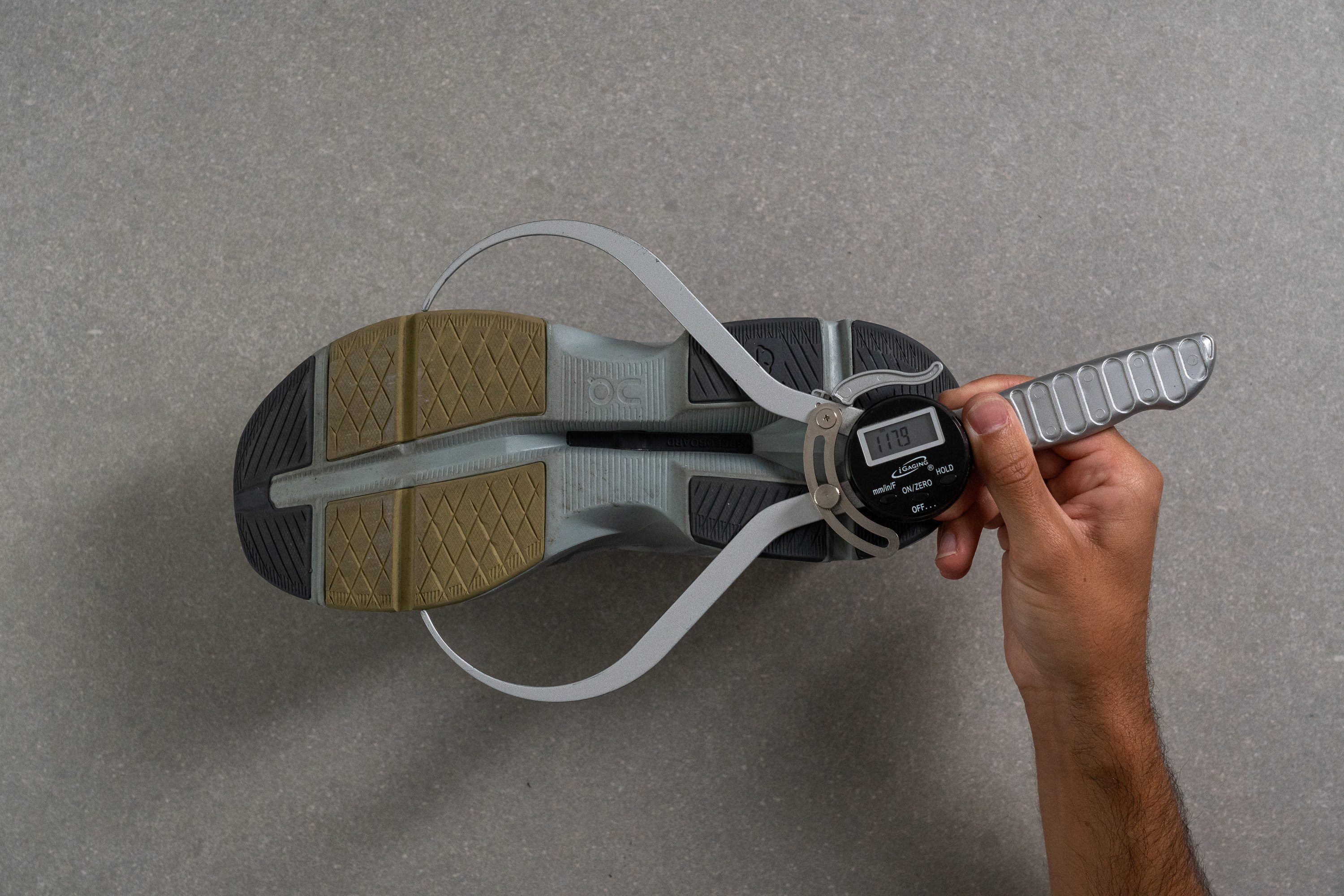
This On shoe has a pretty substantial sole width in the forefoot (117.9 mm) which is almost 8 mm wider than average!
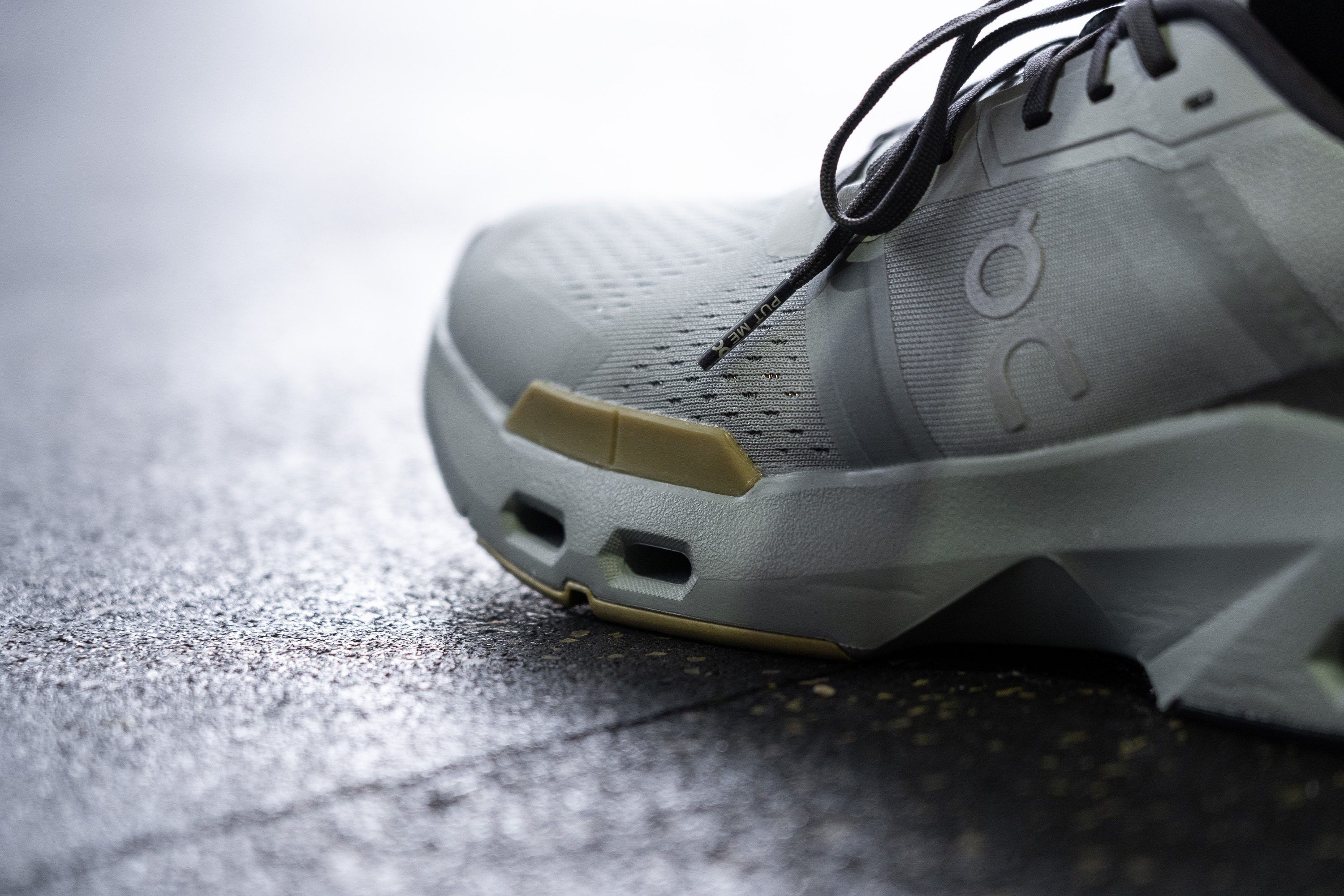
This substantial flange also ends with a stiff TPU component which enhanced our lateral stability even more. At first, we were worried that it might rub or numb our pinky toes and that was never the case during the wear tests.
| Cloudpulse | 117.9 mm |
| Average | 110.9 mm |
Midsole width - heel
The heel of the Cloudpulse also proved to be notably wider than average at 95.0 mm.
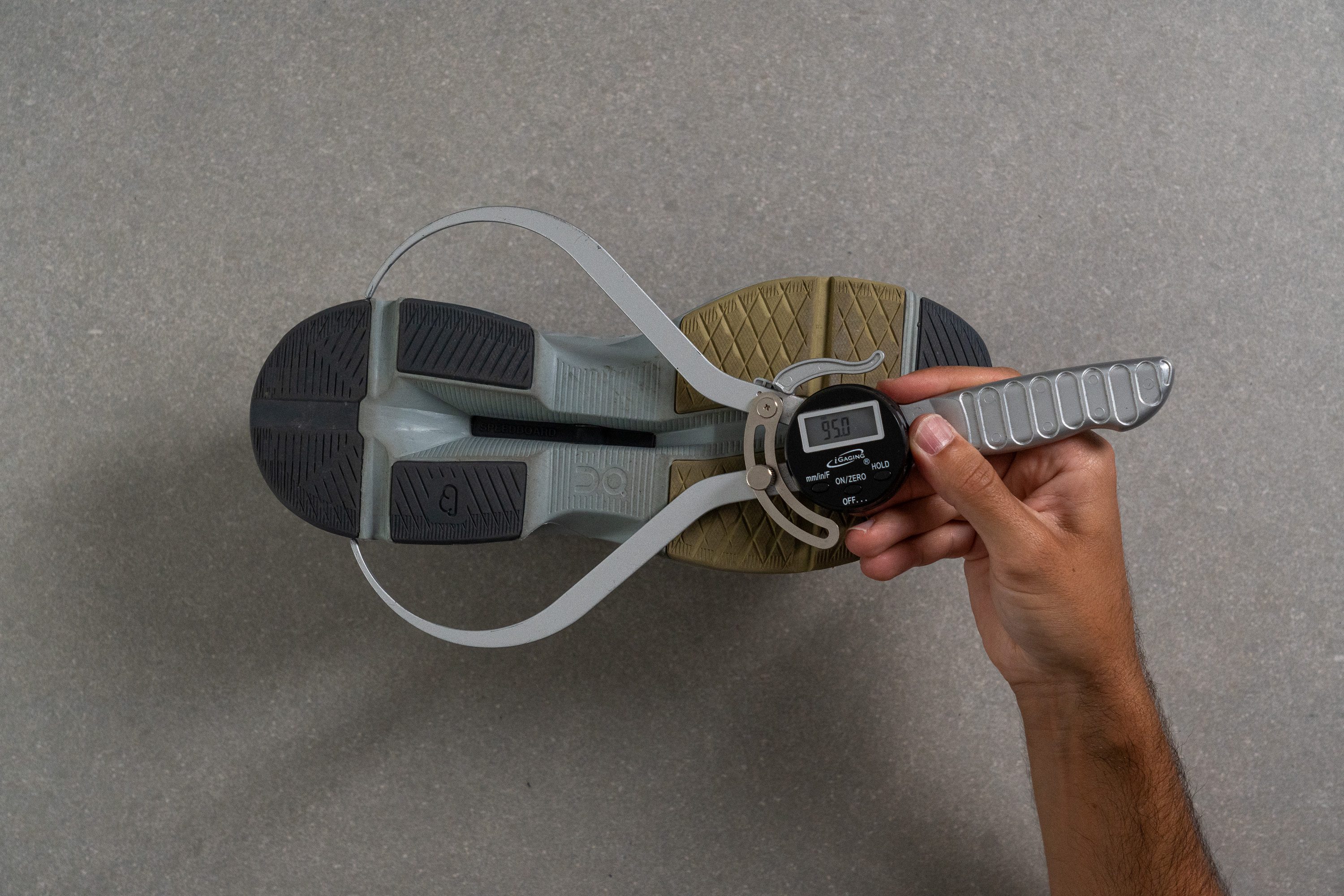
These extended contact points felt very reliable for our jump landings and one-legged exercises.
| Cloudpulse | 95.0 mm |
| Average | 86.9 mm |
Durability
Toebox durability
Keeping things light and airy in the upper, the Cloudpulse lost some points in the durability department.
Our Dremel test revealed that the mesh fabric used for the shoe's toebox is too frail to sustain any serious slashes against the floor or gym equipment. Not to mention that a single rope climb can burn right through the material.
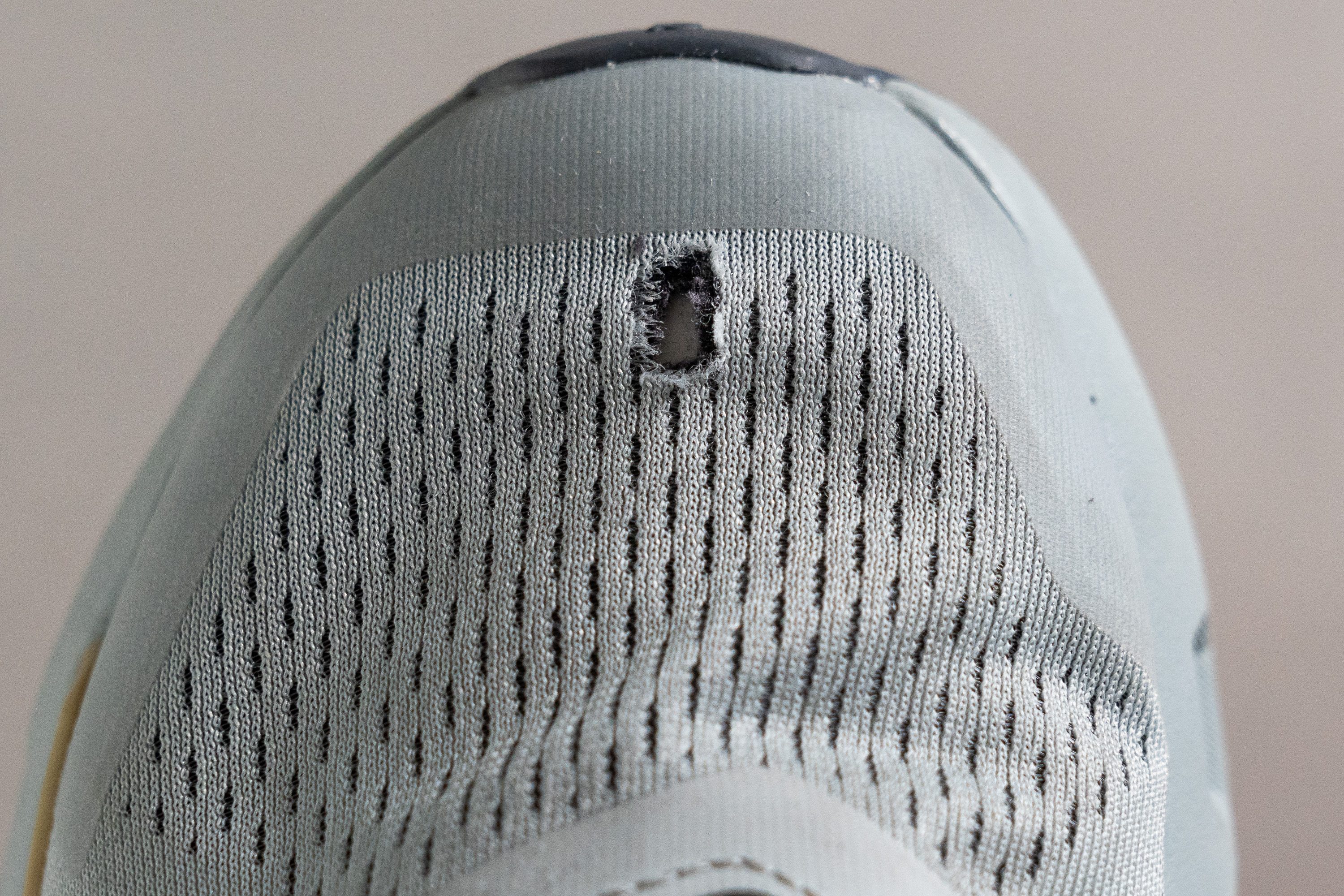
As you can see from the photo above, a 12-second contact with sandpaper at a 5K RPM speed left a see-though hole in this On trainer. This is a definite 1 out of 5 for toebox durability.
| Cloudpulse | 1 |
| Average | 2.7 |
Heel padding durability
On the bright side, the inner lining of the Cloudpulse proved to be much tougher than the toebox. We found that it is ready for the aggressive chafing that comes with intensive workouts.
Our Dremel left just a minor scuff on the inner side of the shoe's heel counter, earning it a high durability score of 4 out of 5.
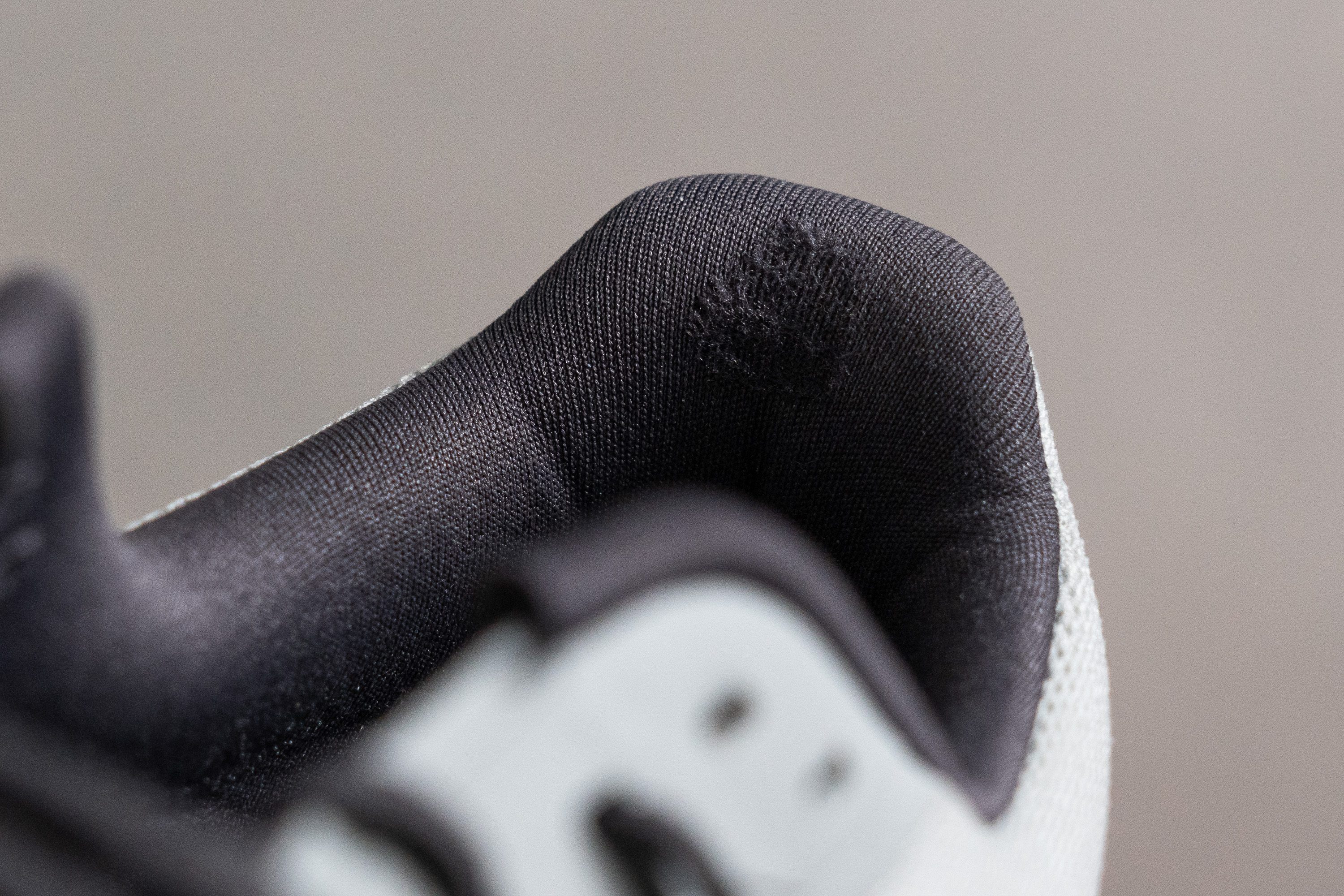
| Cloudpulse | 4 |
| Average | 2.9 |
Outsole hardness
Our lab tests showed that On invested in the Cloudpulse's outsole durability as well!
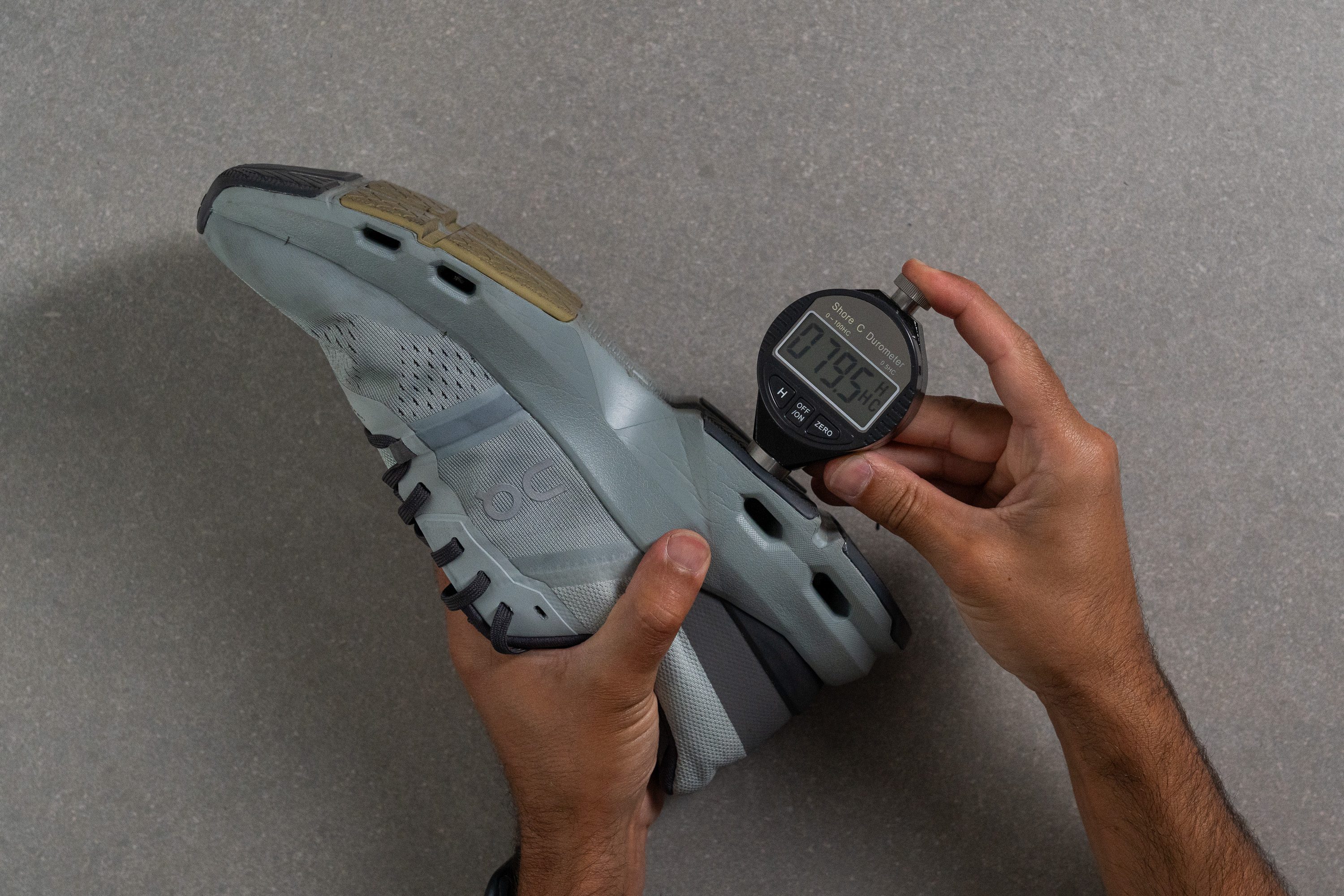
It proved to be just as hard as the average training shoe outsole, according to our Shore C durometer. With a reading of 79.6 HC, it is on par with the industry average.
| Cloudpulse | 79.6 HC |
| Average | 83.2 HC |
Outsole durability
Looking at how well the Cloudpulse resisted our outsole Dremel test, we think that it is very likely to fare well over the long term.
Even after 22 seconds of drilling it at a demanding speed of 10K RPM, the Dremel burned a mere 0.3 mm of rubber! That's an impressive result for a gym shoe.
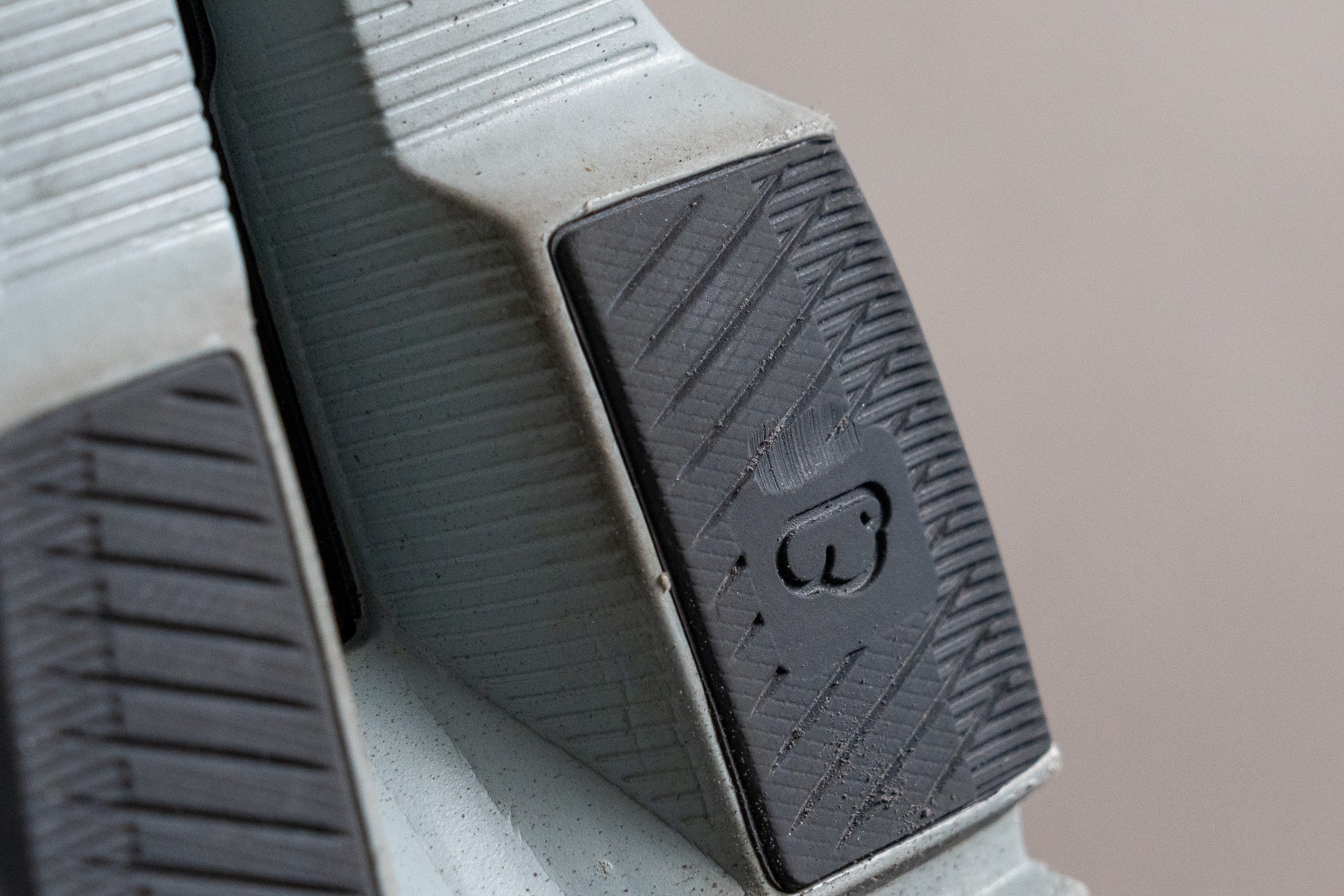
| Cloudpulse | 0.3 mm |
| Average | 1.1 mm |
Outsole thickness
Considering how sturdy the shoe's rubber compound is, we are not worried about its outsole thickness being thinner than average at 2.1 mm.
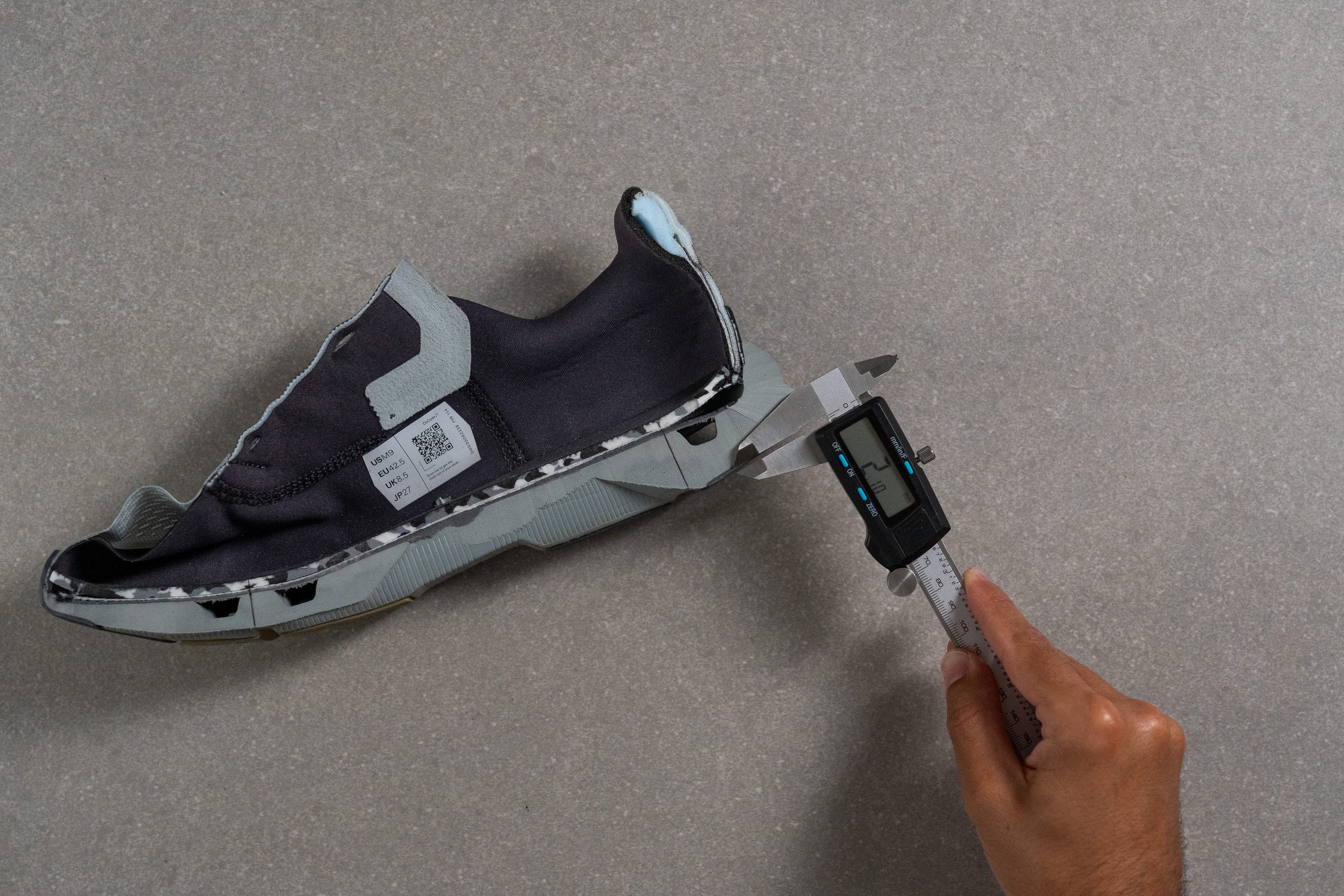
Overall, we are impressed with the sturdy construction of the Cloudpulse and believe that it can last forever as an indoor gym shoe. But its only limitation is the frail toebox mesh that won't survive abrasive activities like rope climbs.
| Cloudpulse | 2.1 mm |
| Average | 3.6 mm |
Misc
Insole thickness
A thick well-padded insole amplifies in-shoe cushioning and comfort. In the heel, it showed a higher-than-average reading of 5.0 mm.
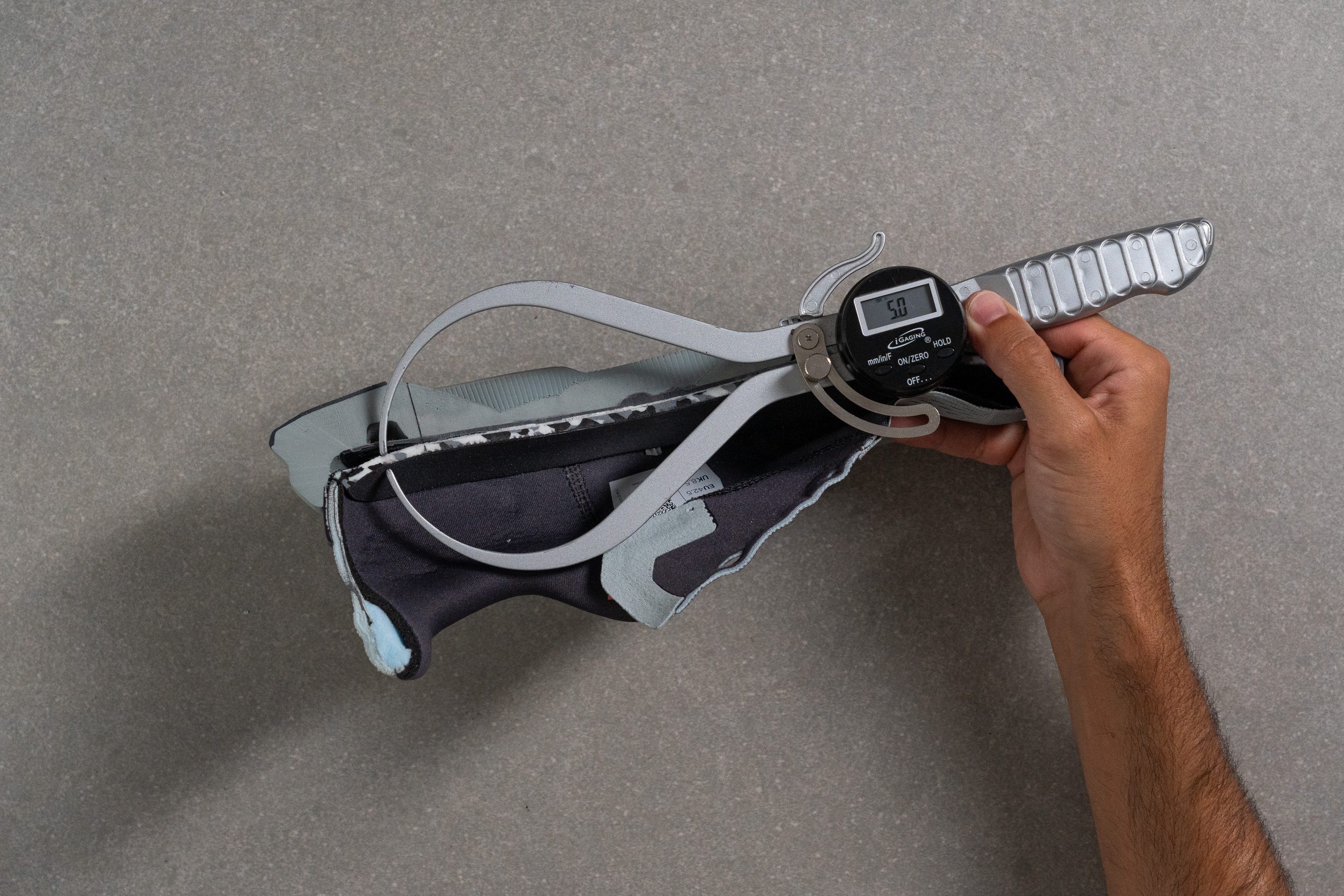
| Cloudpulse | 5.0 mm |
| Average | 4.0 mm |
Removable insole
It is important to note that the insole of the Cloudpulse is glued to the strobel. We cannot guarantee that removing it from the shoe would not result in compromising either part.
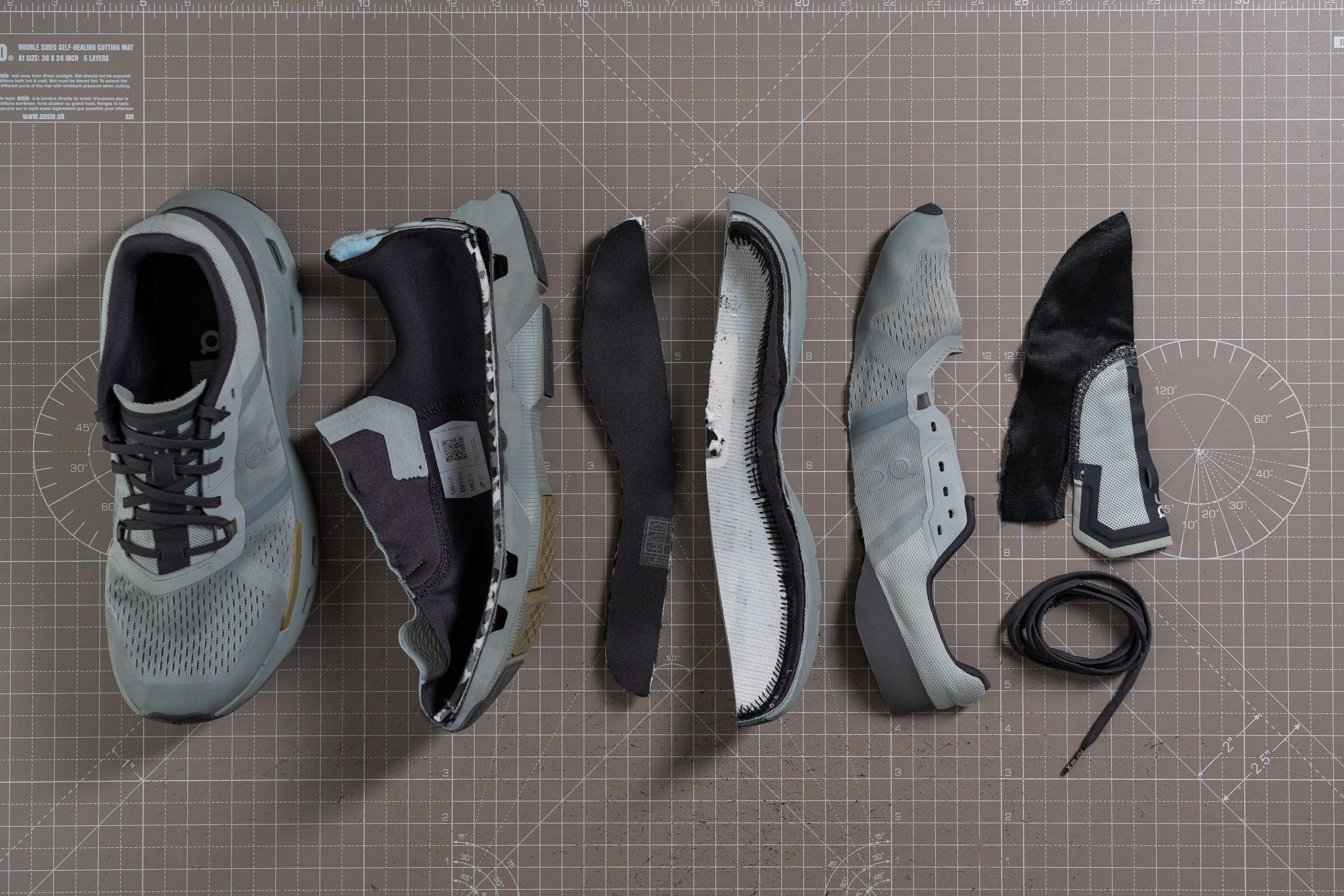
| Cloudpulse | No |
Reflective elements
This On trainer will never get lost in your dark locker thanks to the reflective logo!
| Cloudpulse | Yes |
Tongue padding
There is practically no padding in the tongue of the Cloudpulse. Our caliper showed as little as 2.0 mm of material thickness in this area.
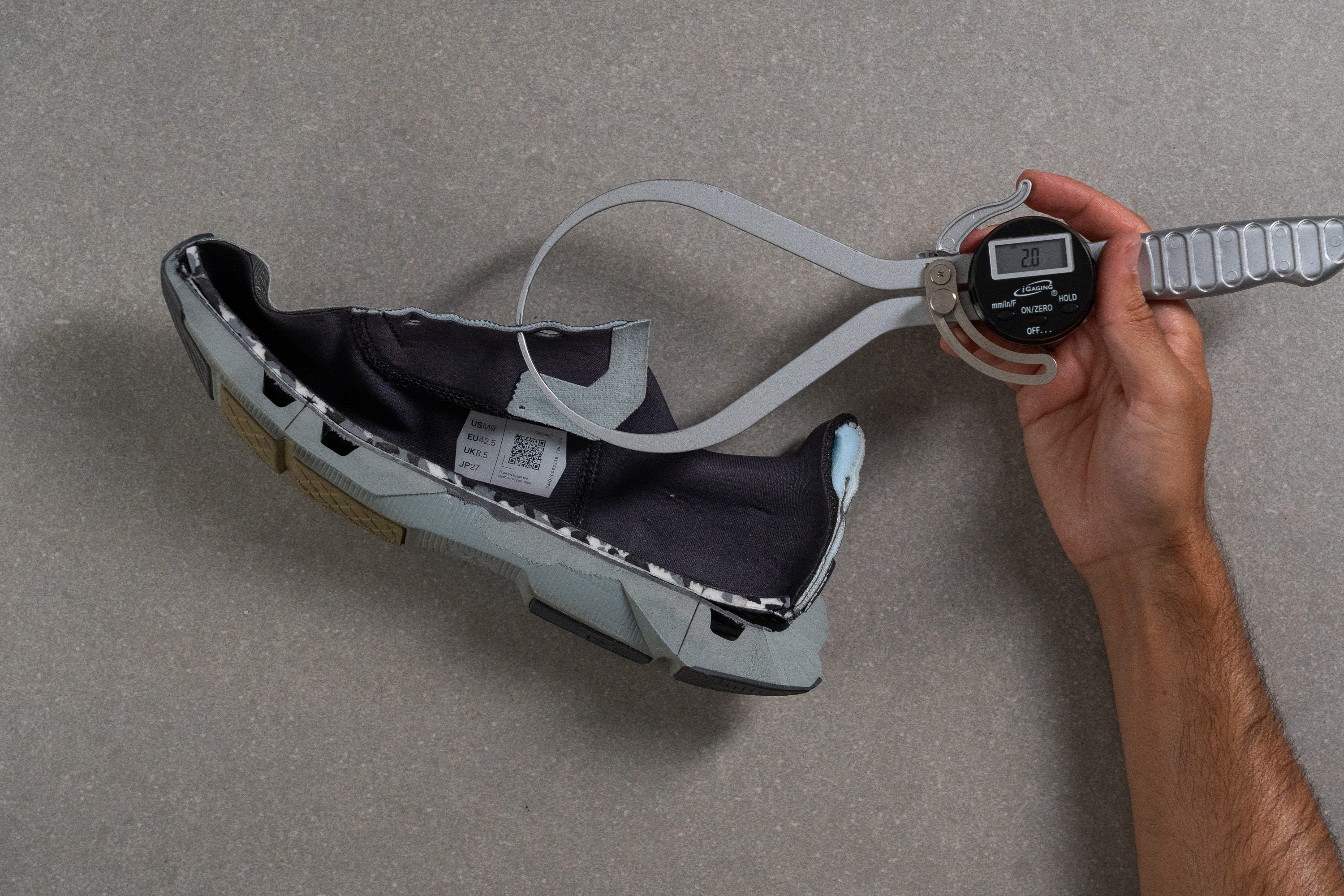
And yet, not a single lace bite!
| Cloudpulse | 2.0 mm |
| Average | 5.7 mm |
Heel tab
Despite not having any finger loops, we found it easy to put on the Cloudpulse thanks to its wide shoe mouth.
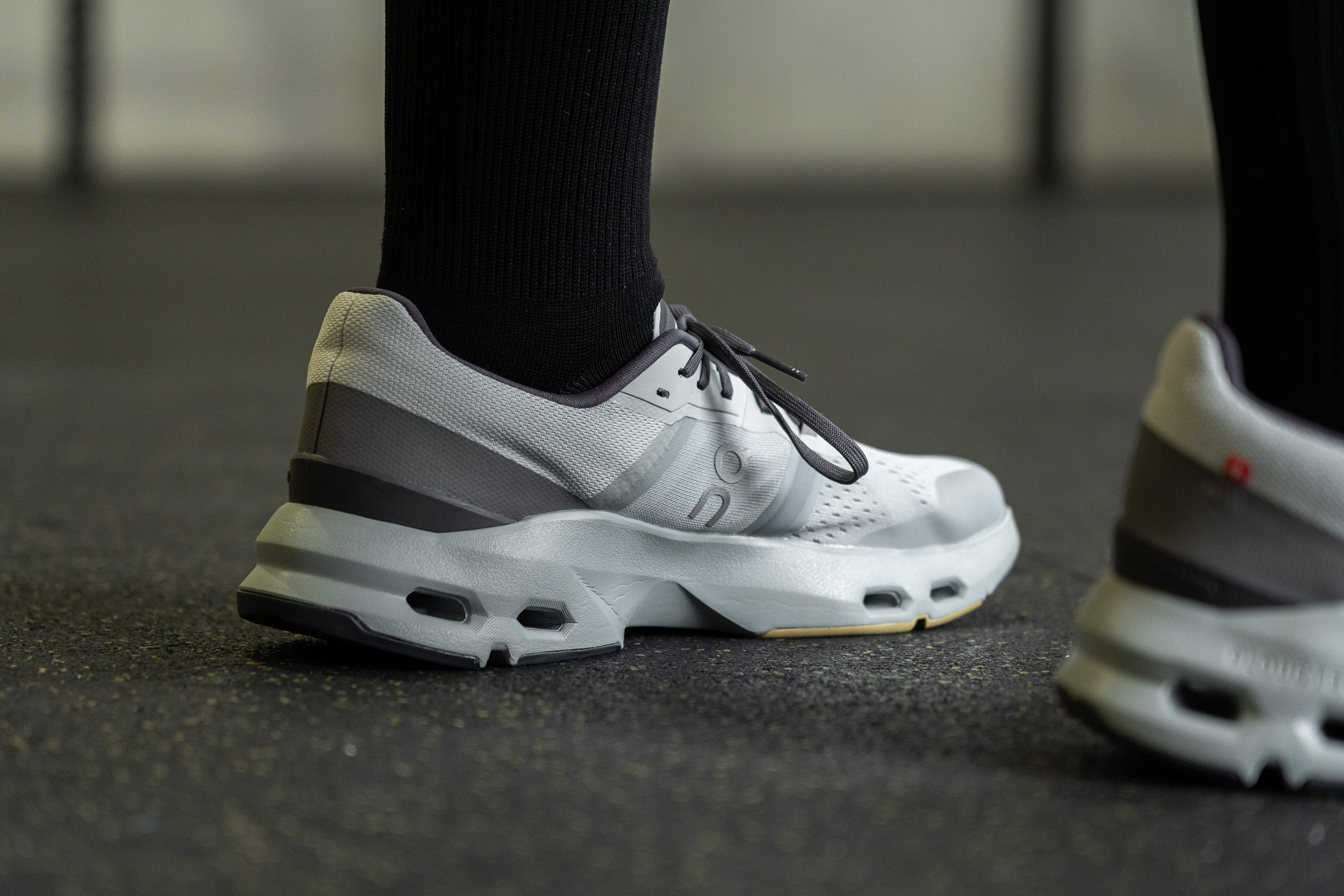
| Cloudpulse | None |
Tongue: gusset type
A gusseted tongue has almost become a standard component of any performance shoe and we are happy to see it in the Cloudpulse as well.
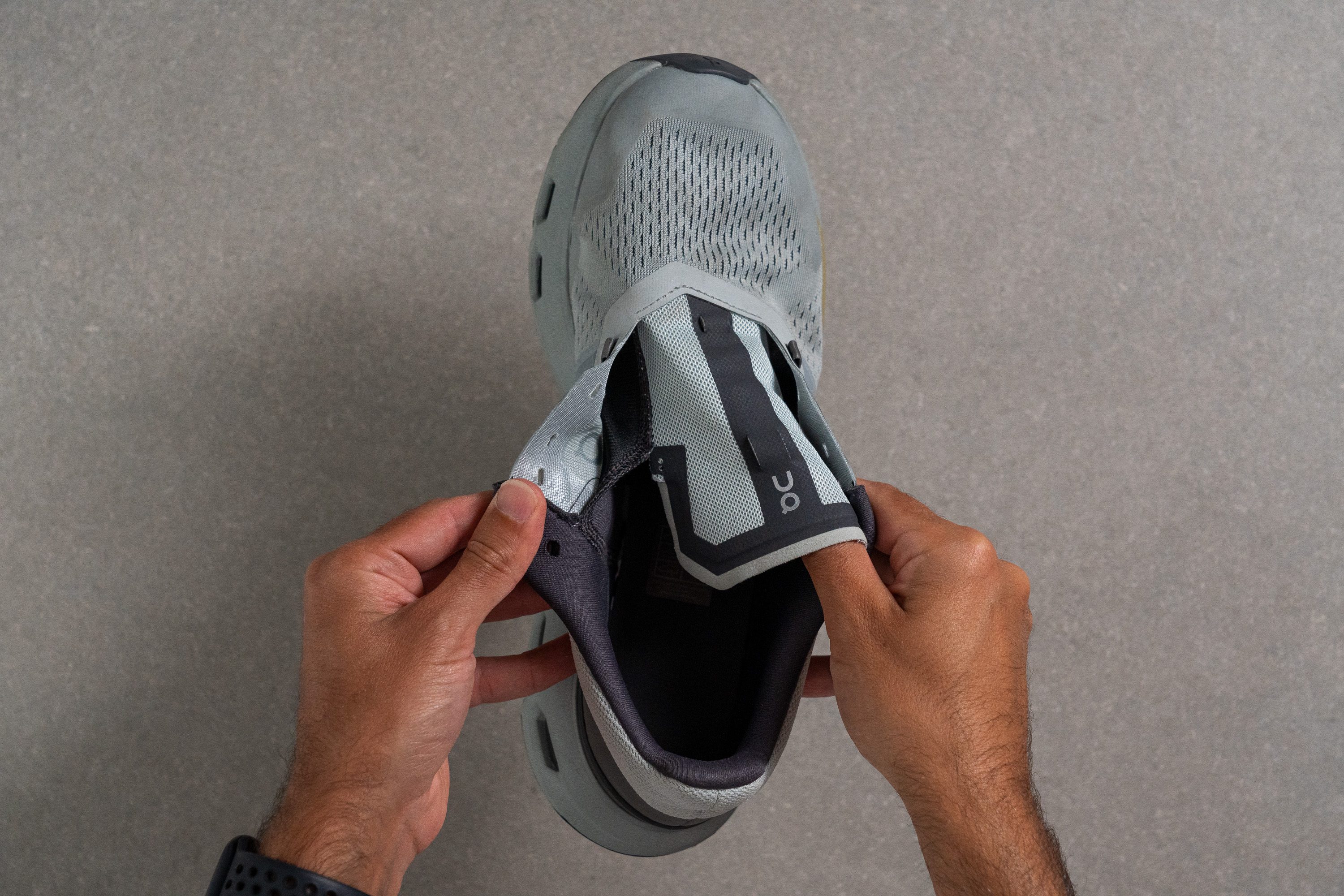
Even though it is semi-(not fully-) gusseted, this upper design offered a very secure lockdown for our feet. Fast-paced multi-directional movements felt well supported.
| Cloudpulse | Both sides (semi) |
Sustainable materials
Environmentally cautious buyers may be pleased to know that the total amount of recycled materials in the Cloudpulse is 24%. This is courtesy of the shoe's recycled polyester upper.
